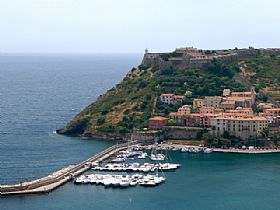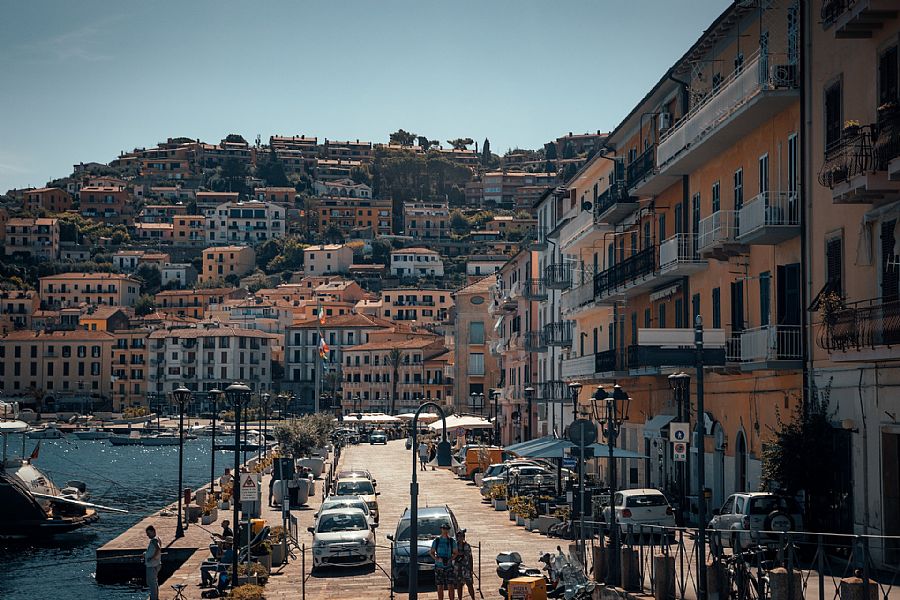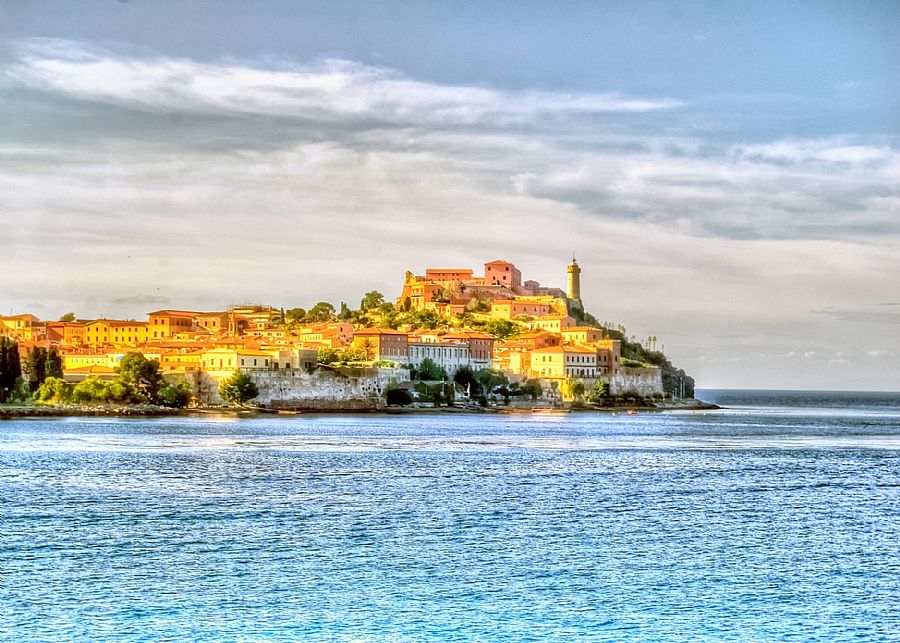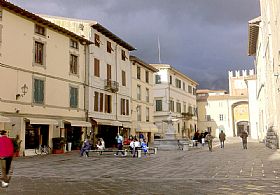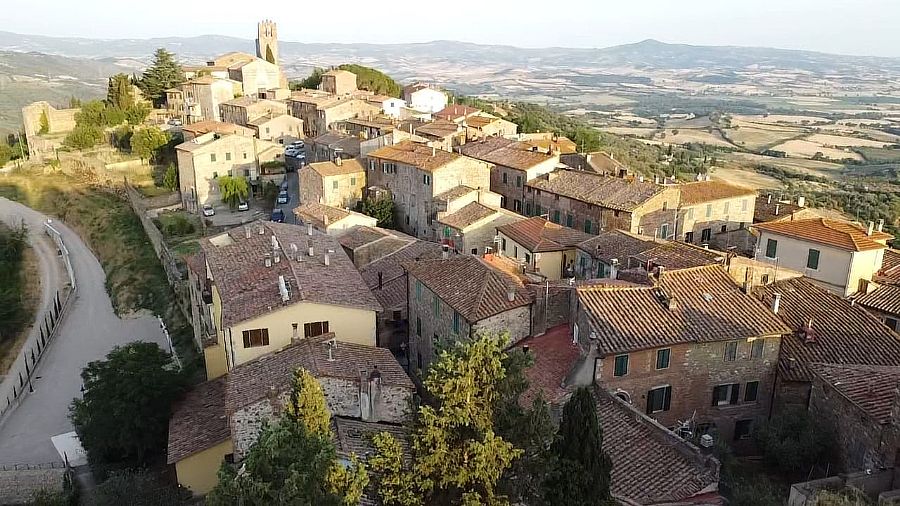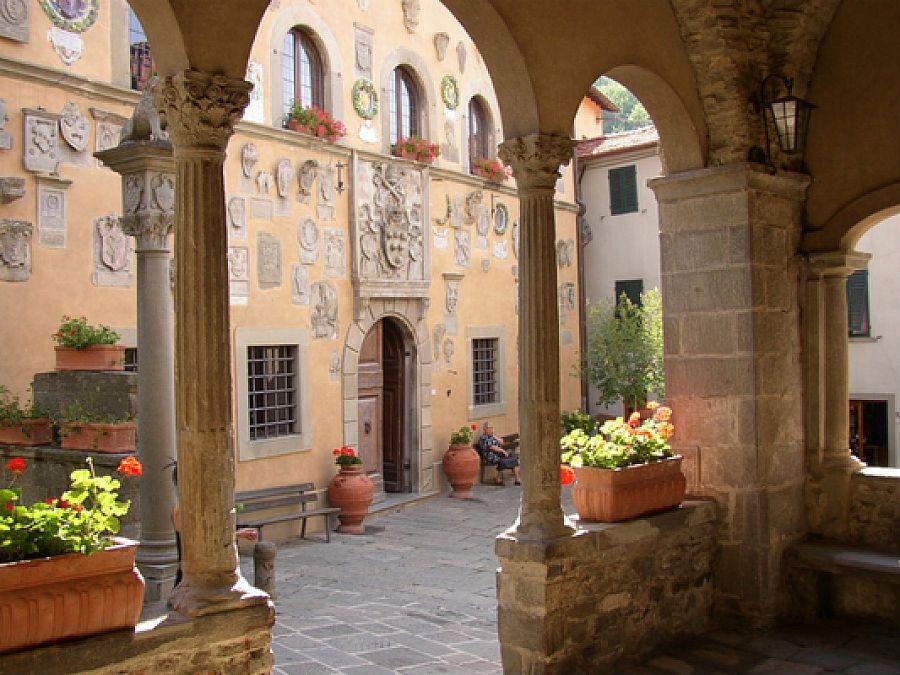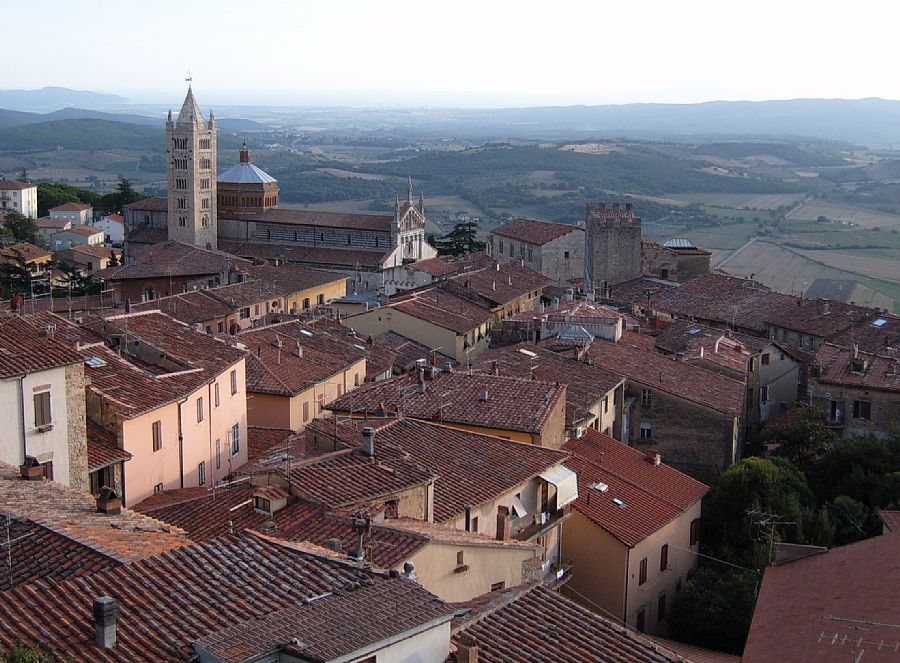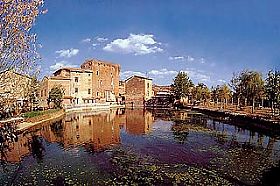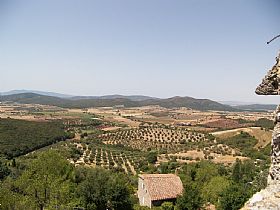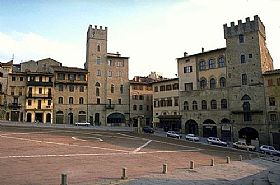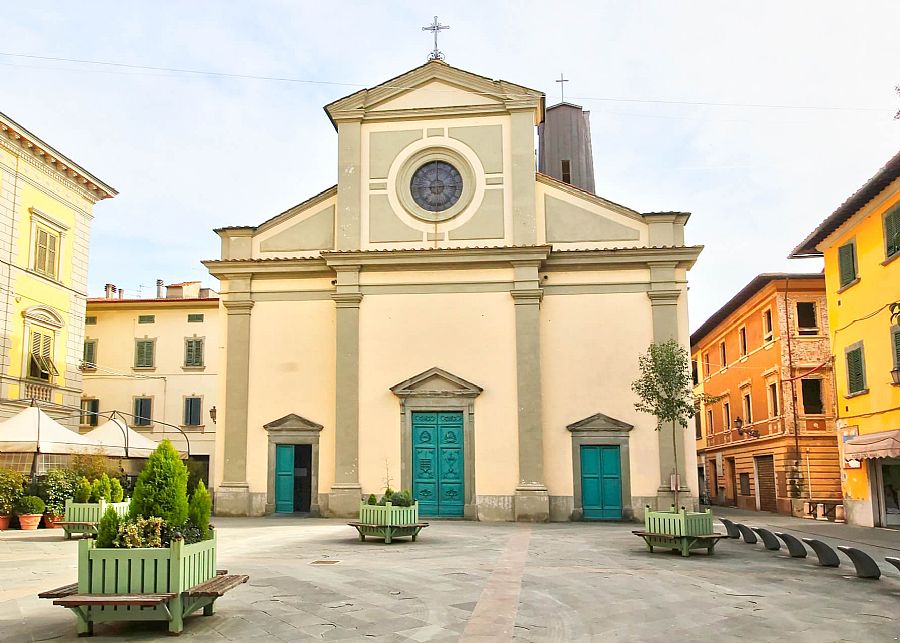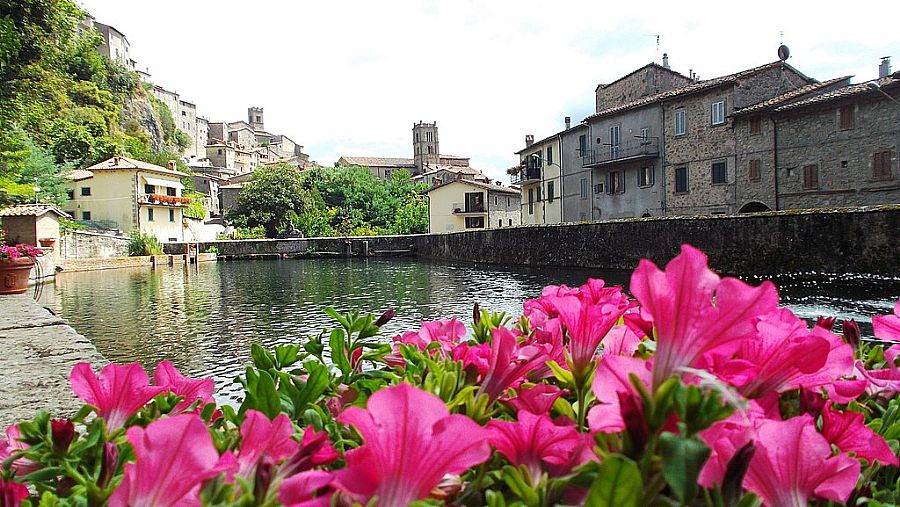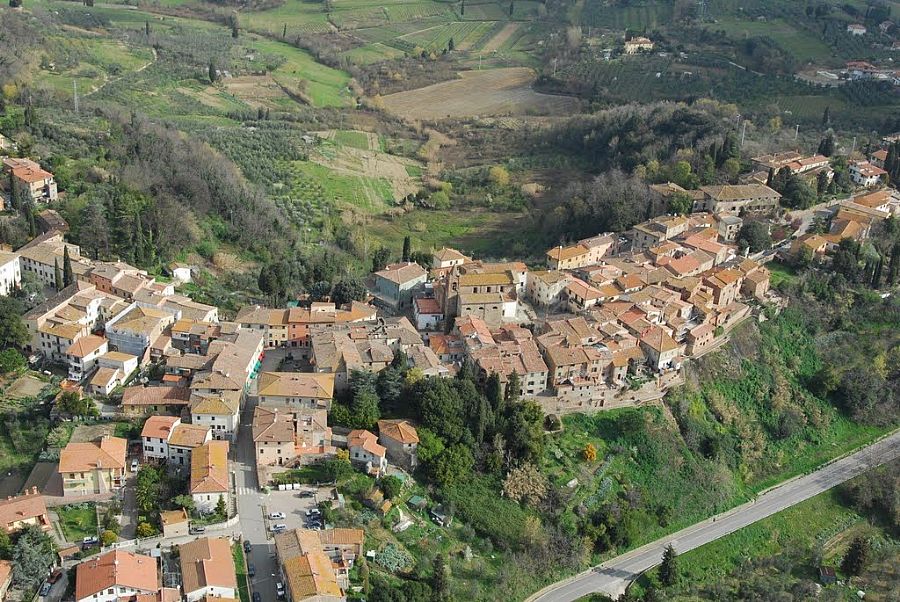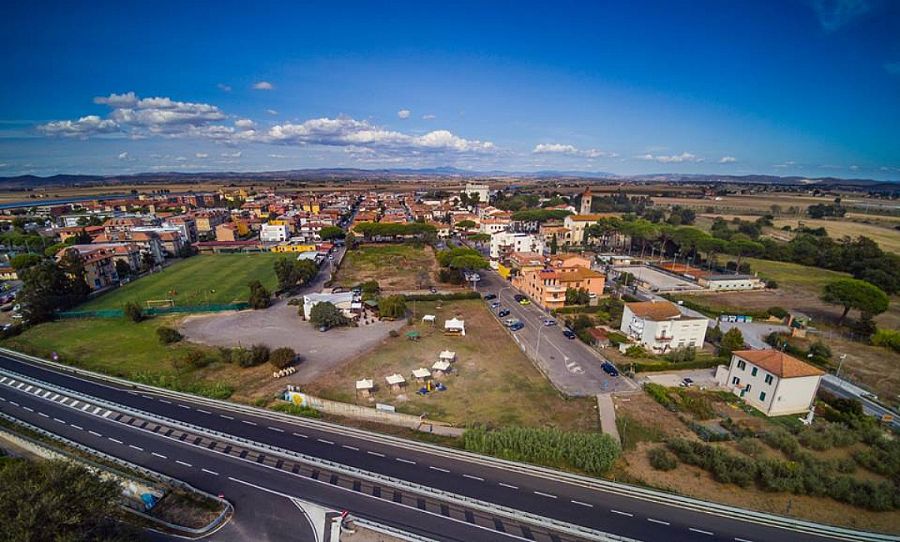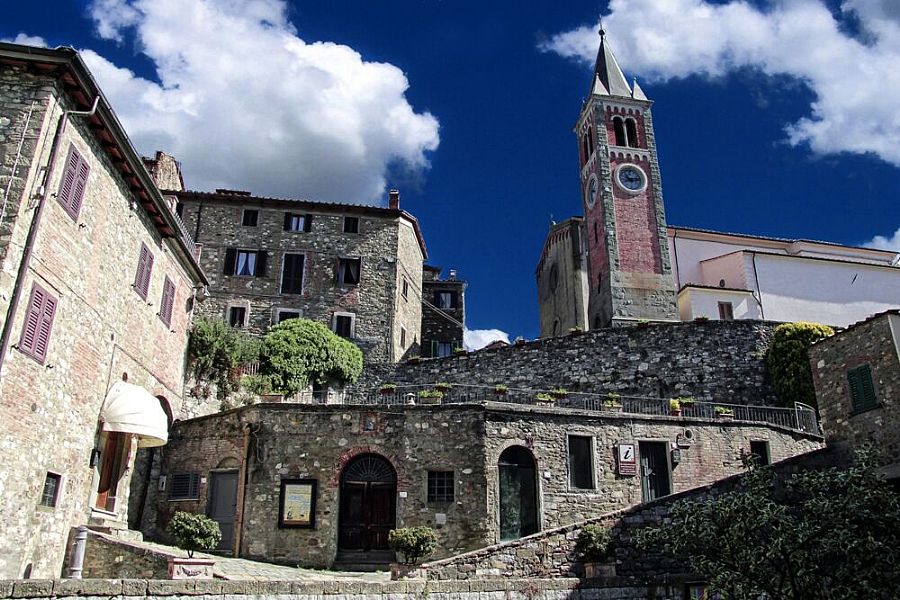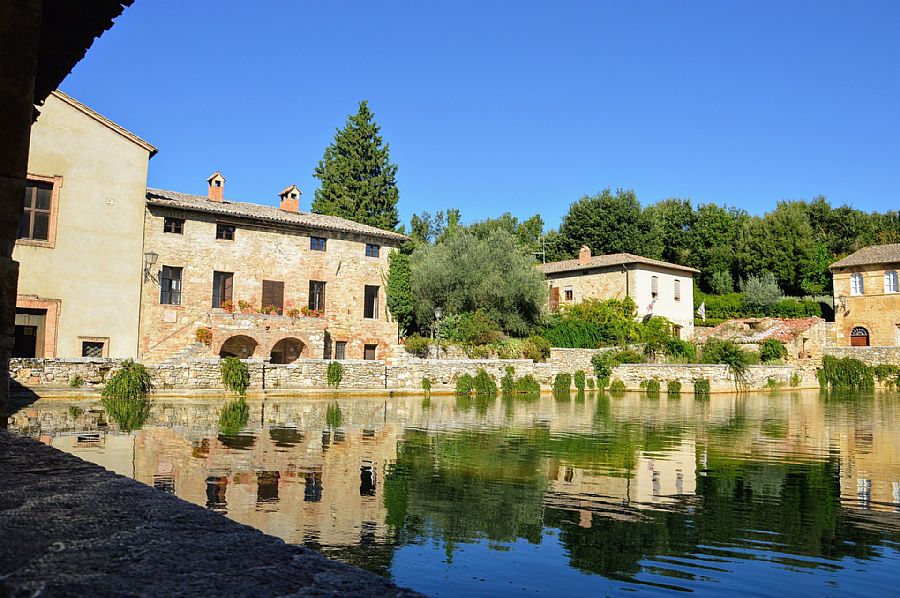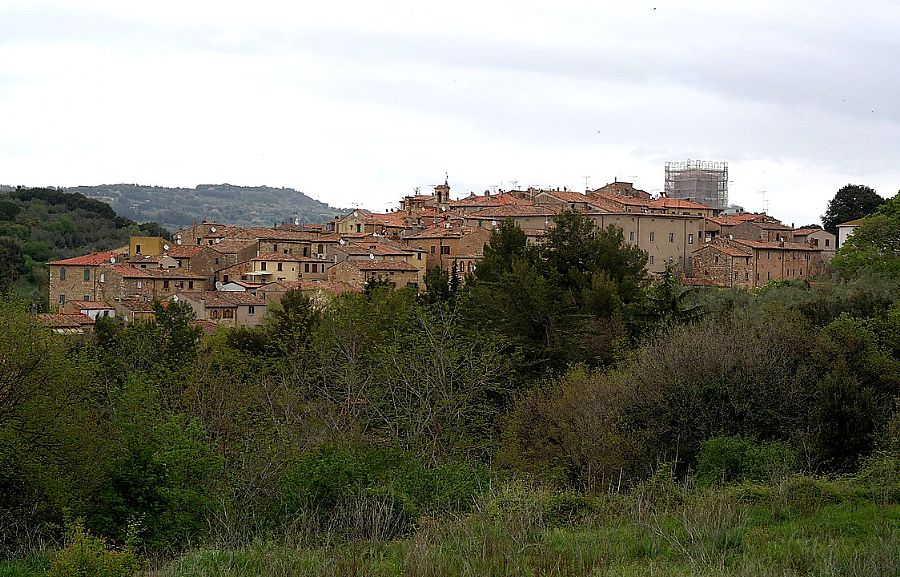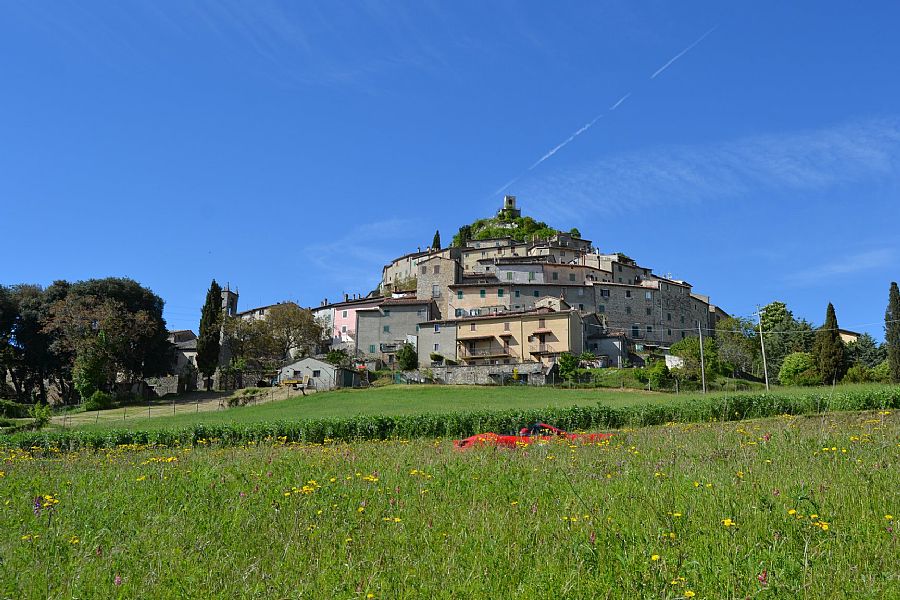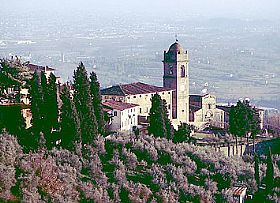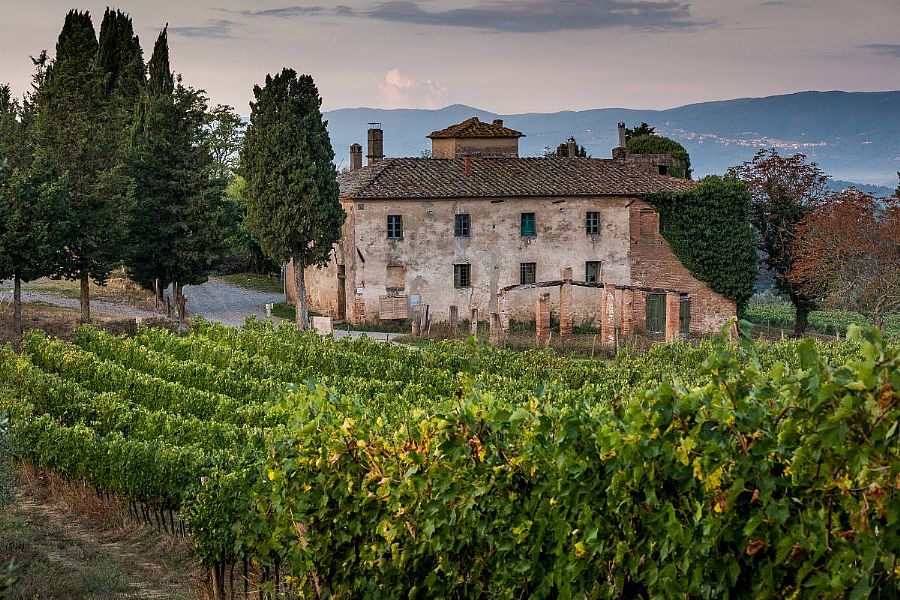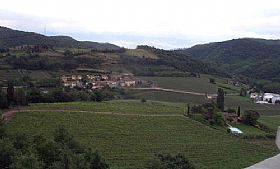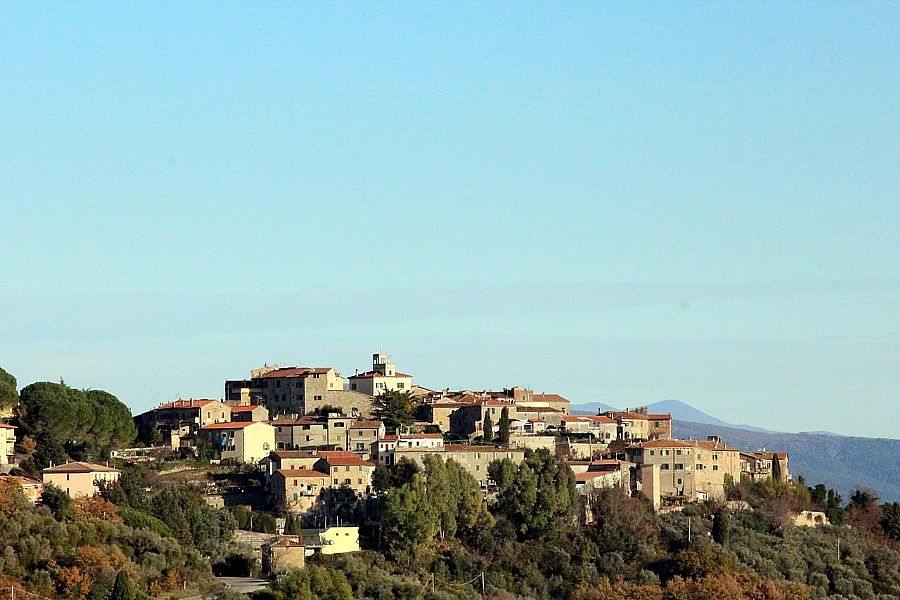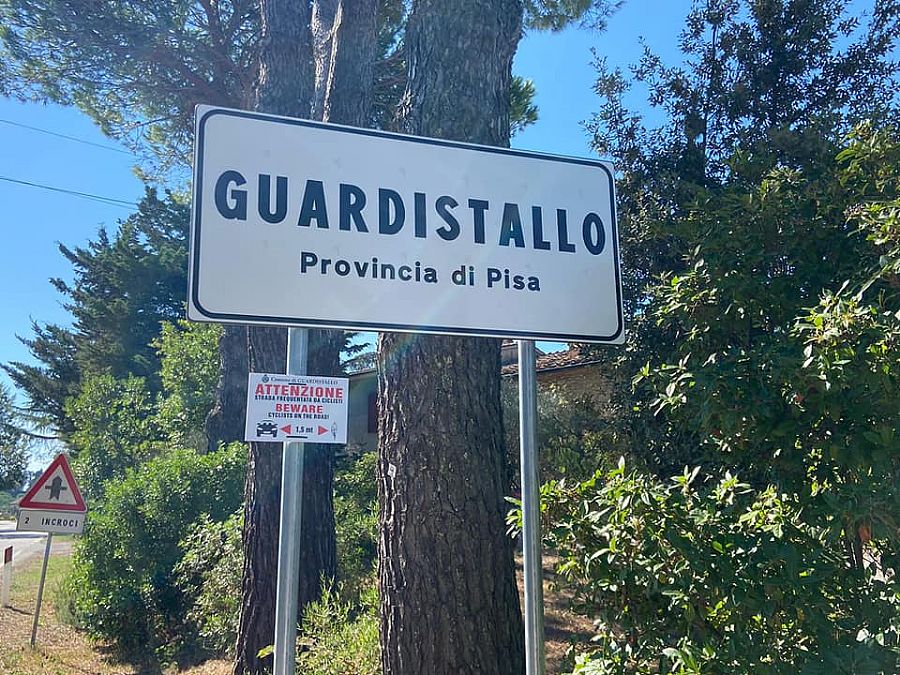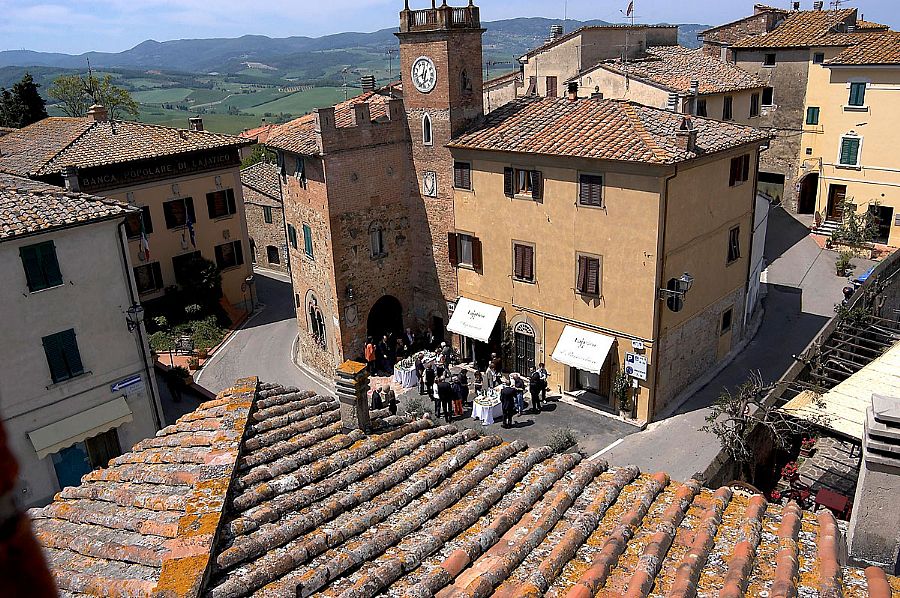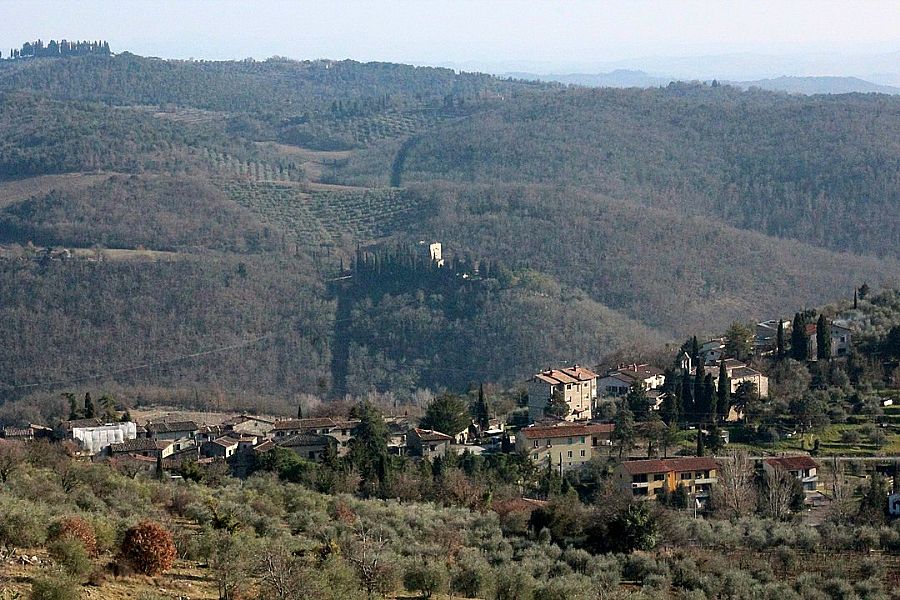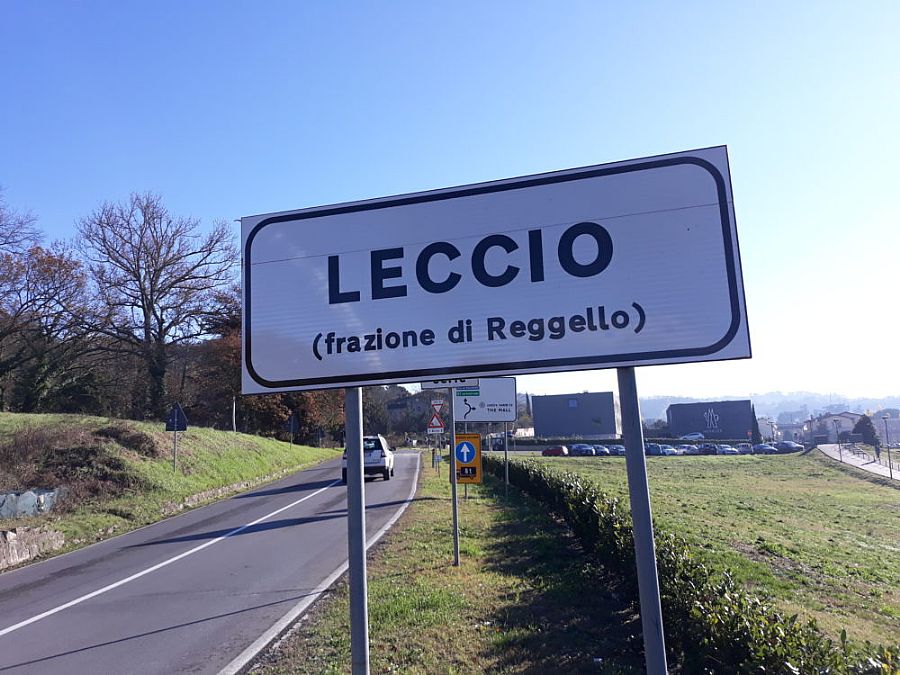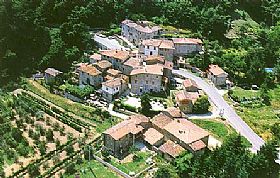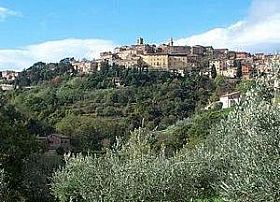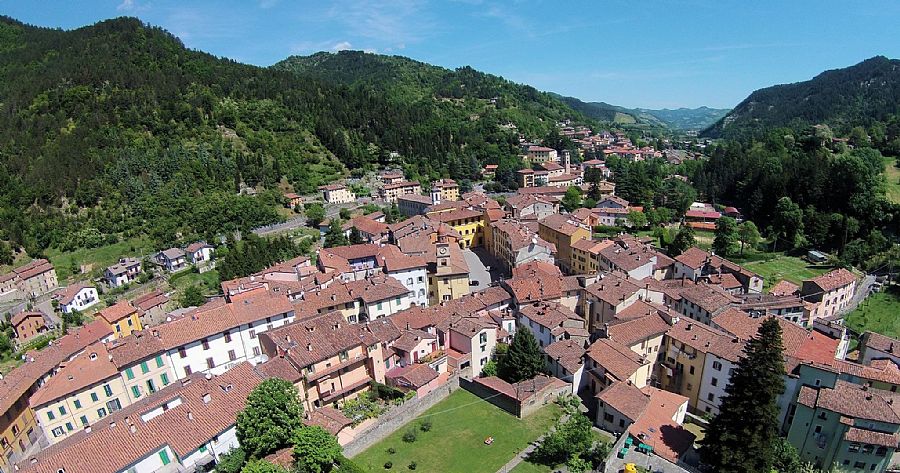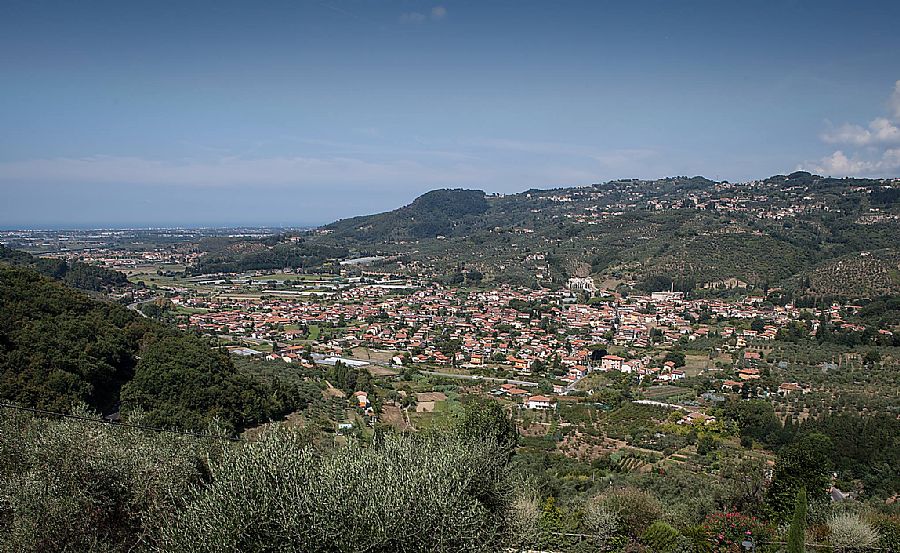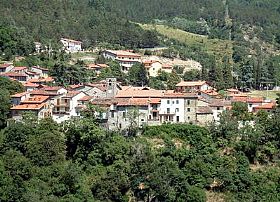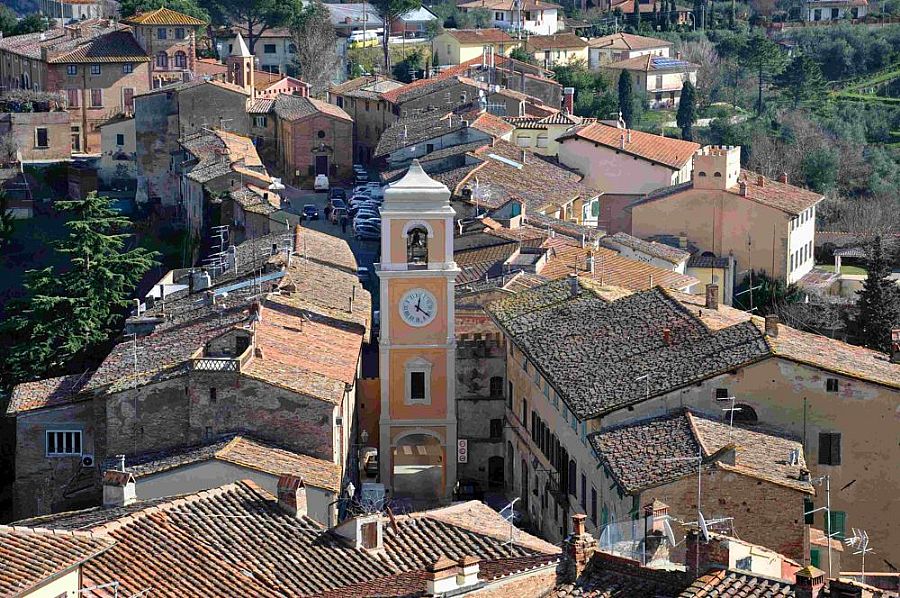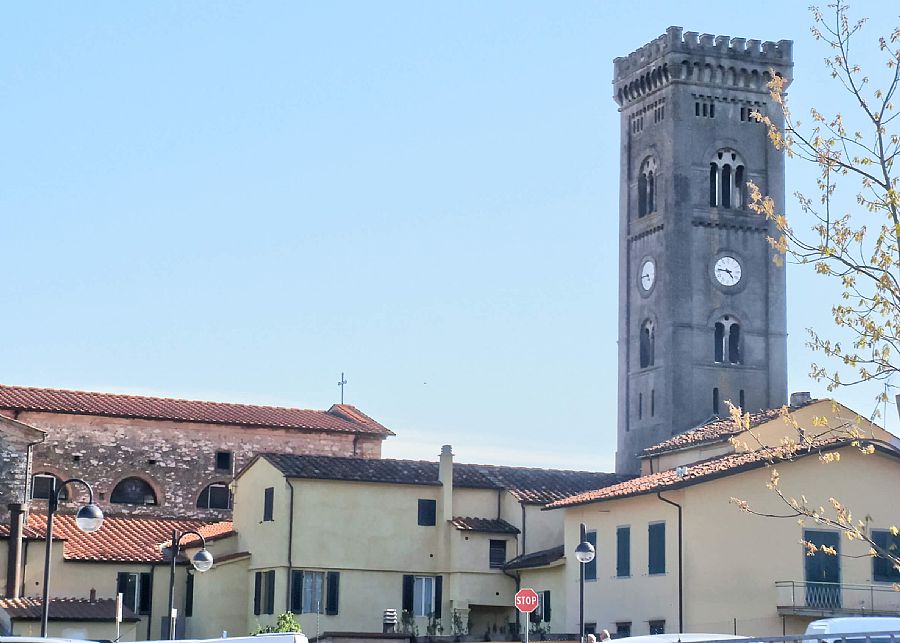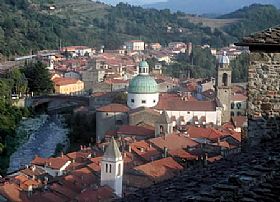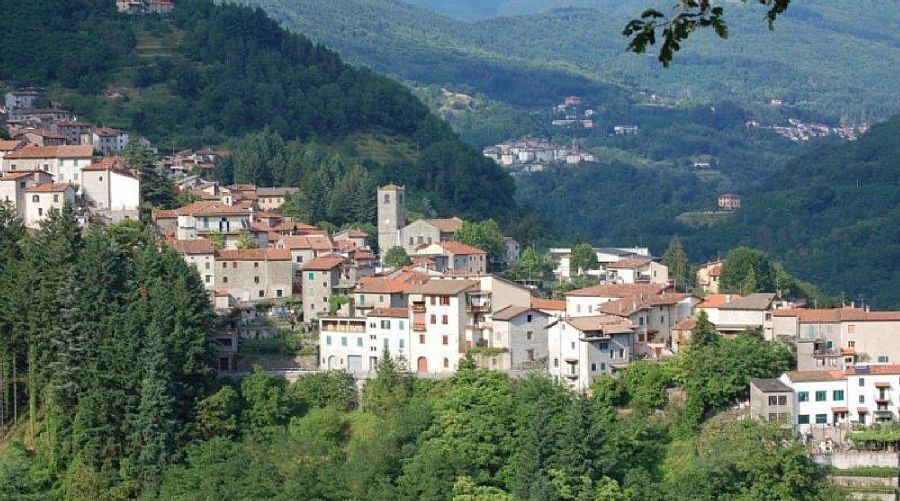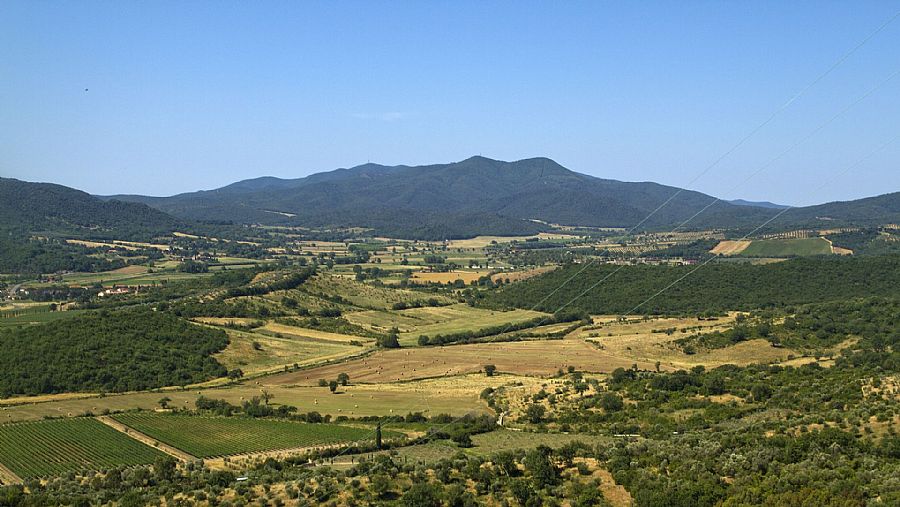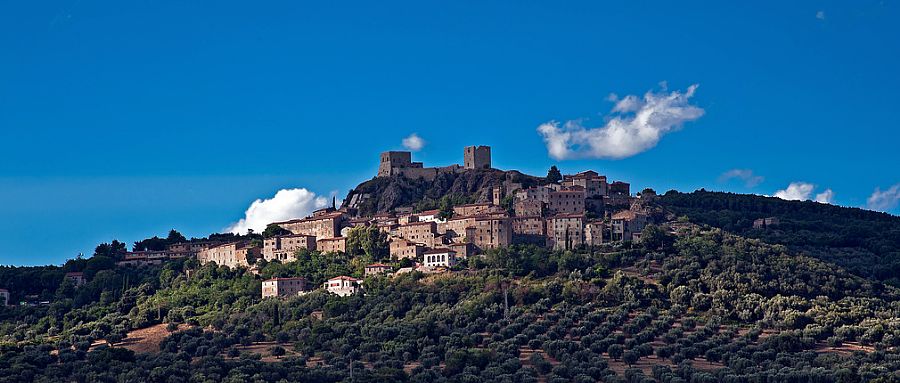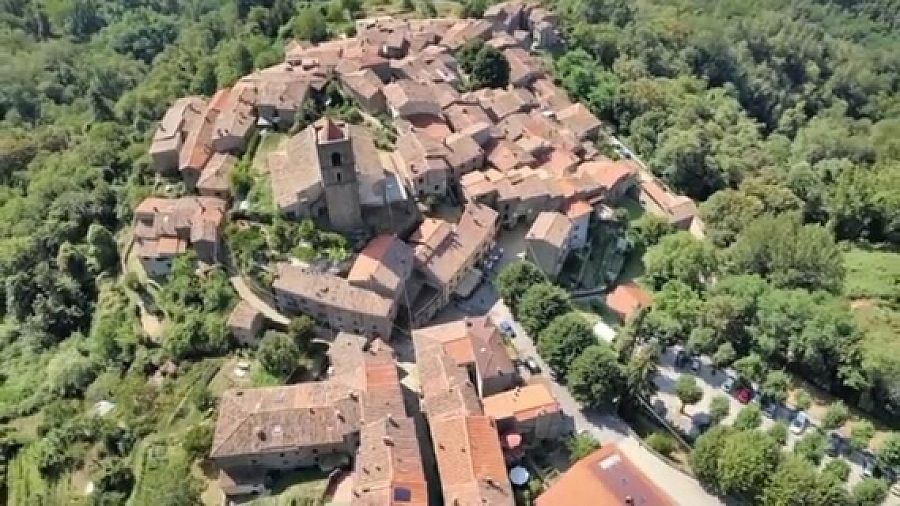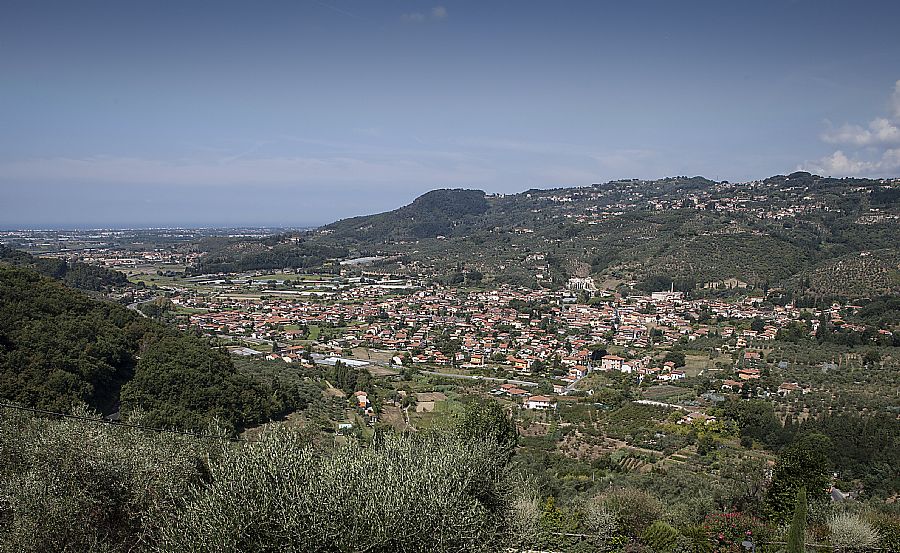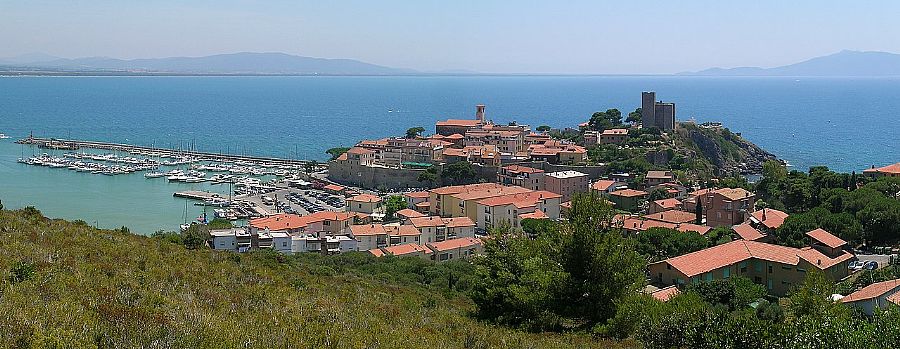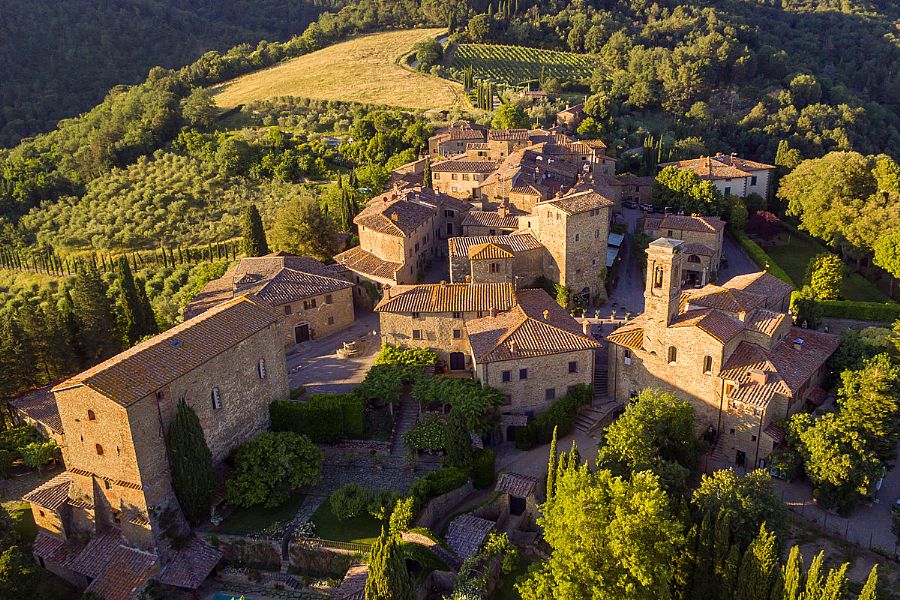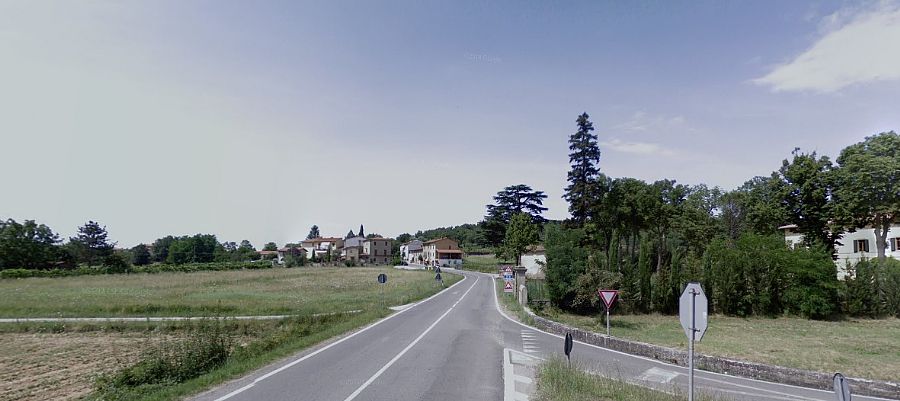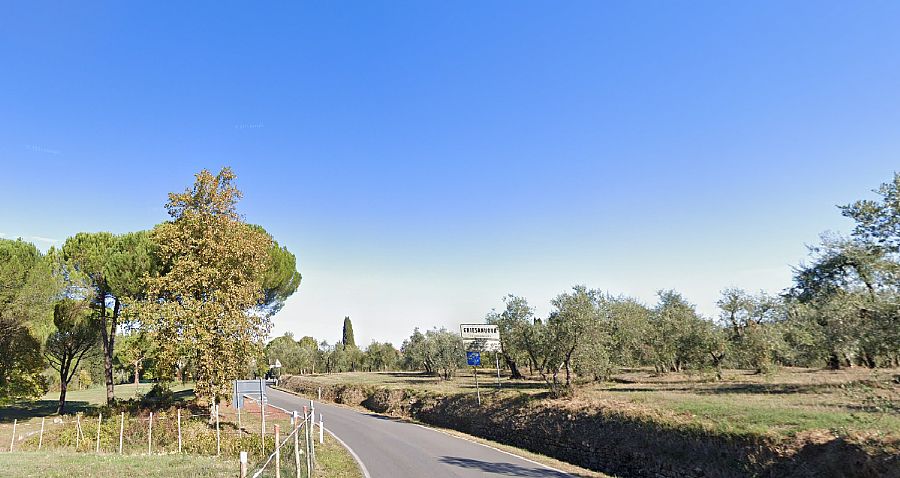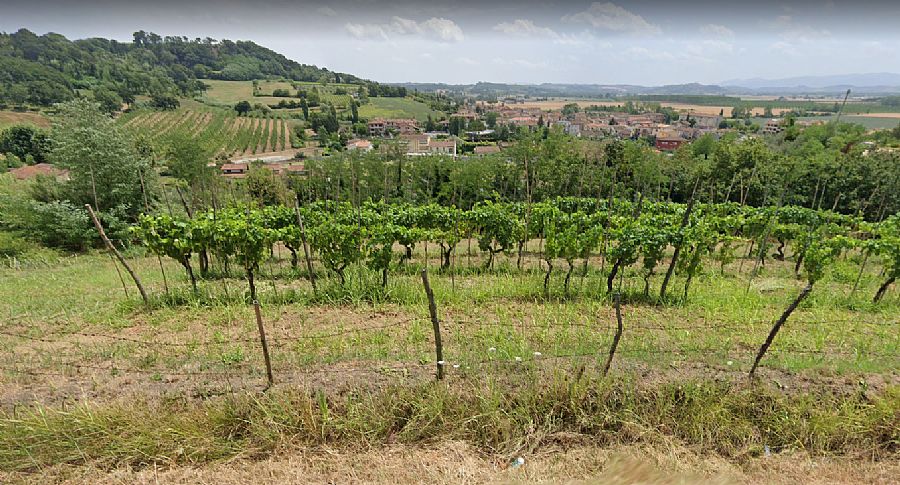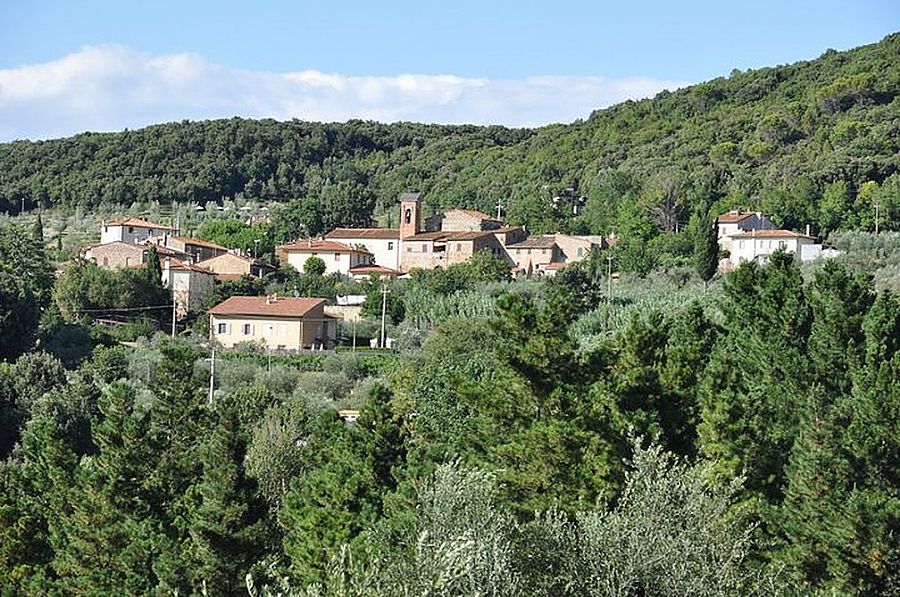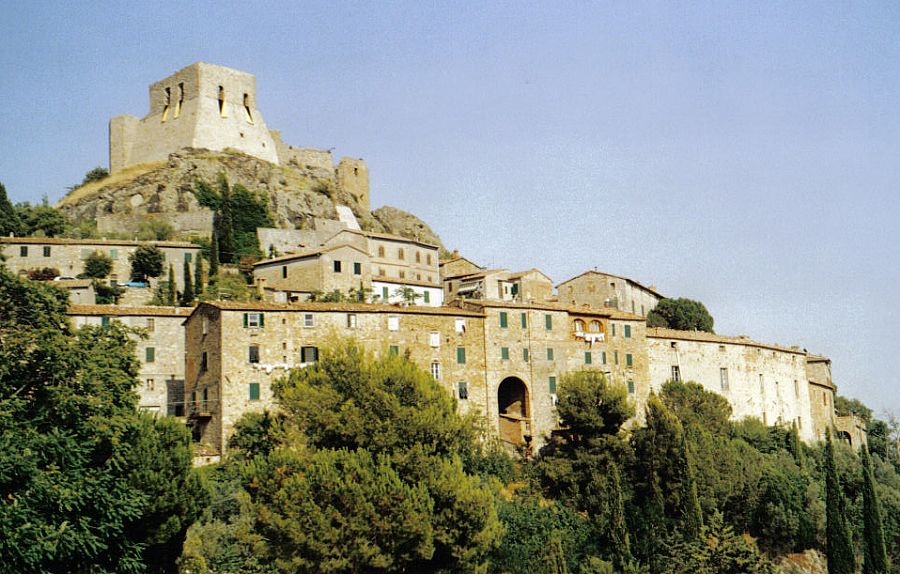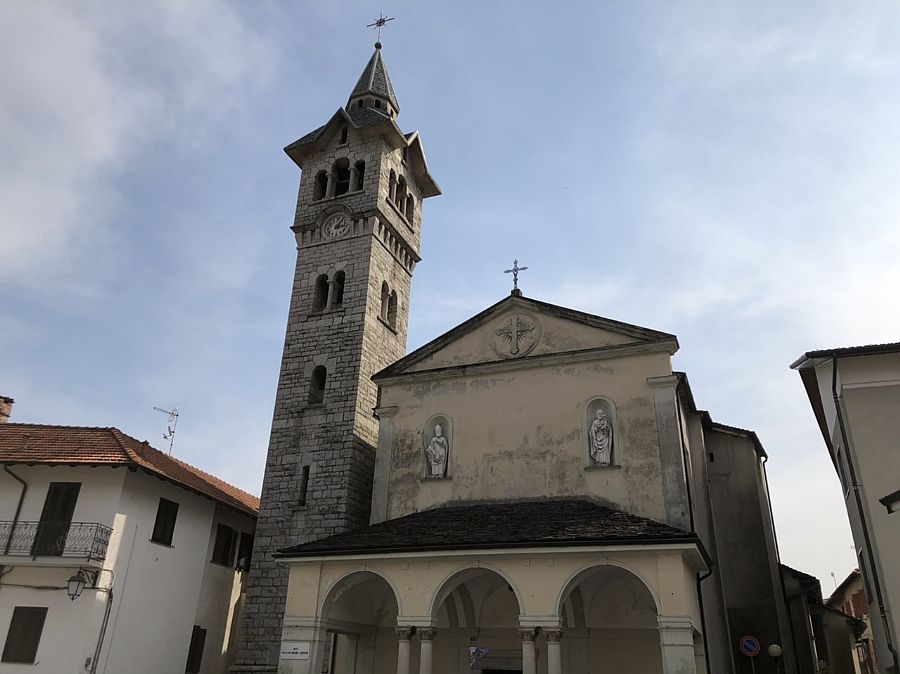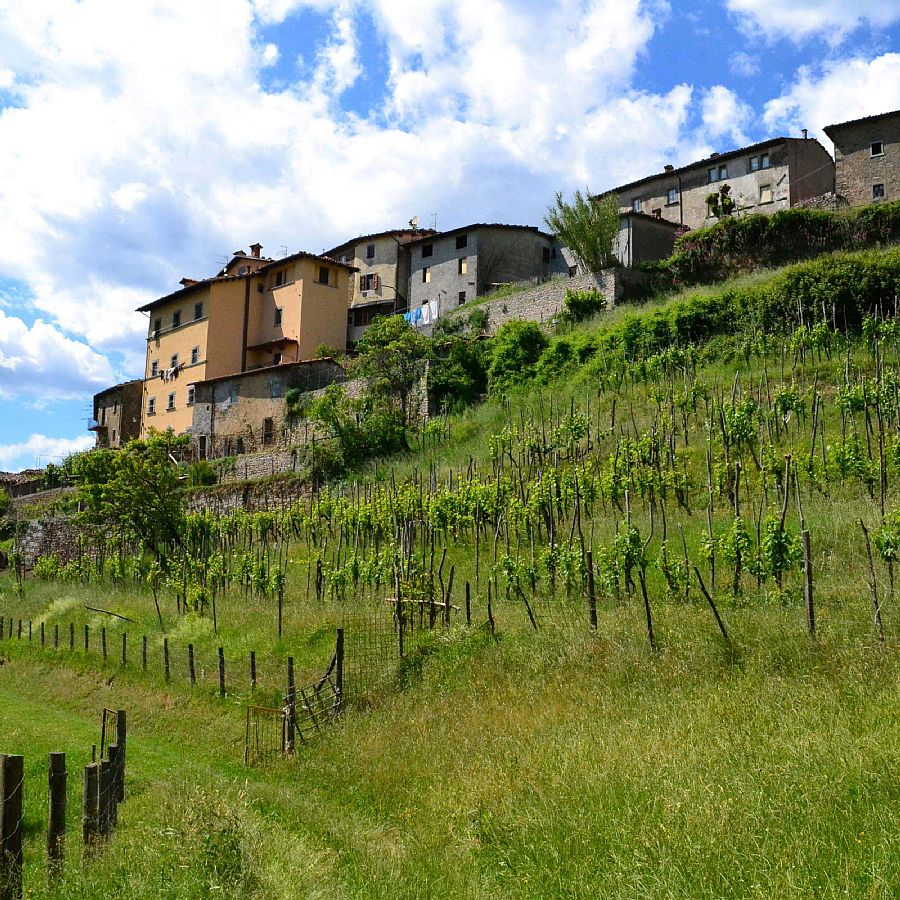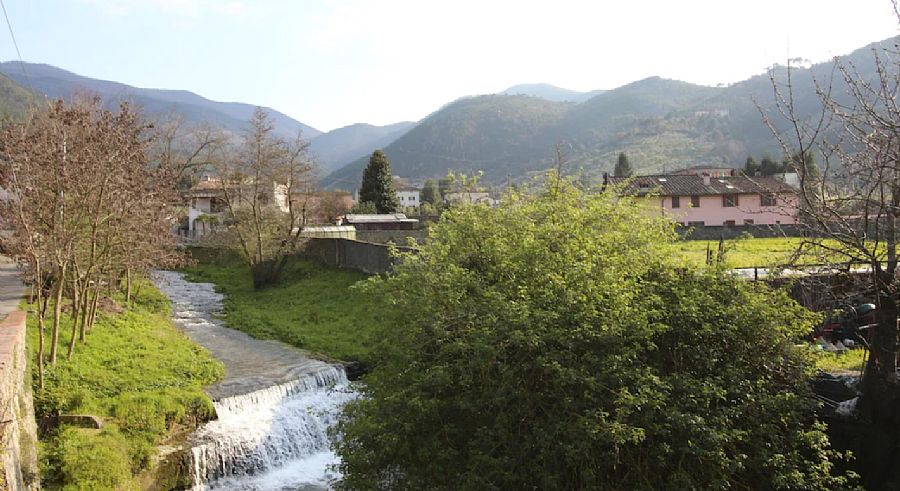Tuscany

Without a doubt, Tuscany is the most famous region in Italy. Its fabled landscapes, renowned art, and acclaimed landmarks have made it a popular destination for centuries. Hill towns look out over rolling countryside that is covered in ordered vineyards, silvery olive groves, and green woods. Cypress trees line up along country lanes, and fields of sunflowers bring smiles as you pass by their intensely yellow blooms. Tuscany is, in short, a picture-perfect place that has been featured in films and boasted about in books.
Tuscany is the land of castles, towers, grand cathedrals, opulent palaces and country villas. The most famous artwork and architecture in the country are found here, and it was the birthplace of the Renaissance. Its illustrious citizens include a veritable whos-who of renowned names: Galileo, Dante, Michelangelo, Da Vinci, Botticelli, Brunelleschi, Puccini, and Medici, to name but a few. No wonder it has been on the tourist map for many years!
The region gets its names from its ancient inhabitants, the Etruscans, from whom today's population claim to be proud descendants. You'll find ruins from several centuries before Christ of these mysterious people who left traces of their civilization in their elaborate funerary rites. The Romans conquered, and then city-states warred and rivaled each other for many centuries. The wars between the Guelphs and Ghibellines and the power struggles between wealthy families kept the region in defensive mode with high walls surrounding their towns and look-out castles scattered all about the hills, which make lovely historic backdrops as you tour around today.
Here you'll find the famed wine regions of Chianti, Montalcino and Montepulciano, storied vintages that are exported world-wide. Vines have been cultivated here since the Etruscan era. Stop by some wineries for a taste and a tour. The Chianti hills and the postcard-like towns of Castellina, Radda and Greve are worthy stops- the quintessential Tuscan villages that glow in the sun. But Tuscany isn't all hill towns. There is a long stretch of coastline that varies from rocky cliffs to wide sandy beaches, and includes famous islands like Elba and Isola del Giglio. The northern part of the region is rugged and mountainous, with forests and sweeping views. Horseback riding, hiking, and cycling are enjoyable activities in these parts.
While Florence is the most famous city and the region's capital, other art cities that can stake a claim for greatness include Arezzo, Siena, and Lucca. Pisa, known for its legendary leaning tower, is here, and Cortona is the home of artist Piero della Francesca. The Maremma, a gentler landscape along the Grosetto coast area, is known for its landscapes that are kept in their natural state. Here, real-live cowboys still roam the range with heritage cattle breeds and sheep.
Spring and fall are the best times to visit Tuscany when the climate is mild without being stifling hot or drizzly chilly. While public transport is readily accessible and available to connect the larger towns throughout Tuscany, a rental car is a good idea to be able to explore the gorgeous countryside an the charming hill towns, which are of course what the region is so noted for.
The Tuscan cuisine is based on Etruscan heritage, with an emphasis on fresh vegetables, herbs and local meats and seafood. "Peasant" cuisine has become more popular, now recognized for its healthfulness, using bread, legumes, and produce as a base, as well as (of course!) pasta. The wide pappardelle noodles and long strands known as pici are regional favorites, often topped with a meat-based tomato sauce that uses wild boar or rabbit. Porcini mushrooms are also highly prized and widely utilized in the kitchen, as are earthy truffles and slow-cooked beans. Everything is washed down with the local vintages, that include Chianti, Montepulciano Nobile, and Brunello for the reds, but also boast some fine whites to pair with the region's seafood, like Vernaccia and Vermentino.
No matter what part of the region you wander to, you're bound to find heart-stopping views, amazing architecture, noteworthy artwork, and a heart-warming feeling at seeing this legendary land.
Florence is the cradle of Renaissance splendor and keeper of an artistic heritage unrivaled in the world.
Arezzo is an extraordinary and ancient city, that is actually as old as Alexandria of Egypt.
Pisa is renowned town in Tuscany, famous for a certain tower, but is home to many other beautiful things, as well.
Siena hardly needs an introduction; it is one of Tuscany's great art cities and a gem of central Italy.
Cortona gives a great first impression when you see it stumbling up its hillside from the valley.
Montalcino lies in the heart of southern Tuscany, famous for its fine wines and dreamy landscapes.
Montepulciano is one of Tuscany's prettiest towns, strung along a ridge at 605 meters above sea level near the border of Umbria.
Part of the UNESCO’s heritage, this enchanting Renaissance village is surrounded by the Val d'Orcia, one of Tuscany's most celebrated landscapes.
Pistoia (north-west of Florence) is a lovely place for wallowing in rural beauty, enjoying the wealth of watercourses like Ombrone Pistoiese that dimple the land, and provide the opportunity to admire precious ichthyic species in crystalline waters.
San Gimignano is one of the most famous small towns in Italy.
San Miniato is a charming country town rising on top of a gentle hill, close by the city of Pisa.
Castiglion Fiorentino rises on a small hill that dominates on a vast surrounding landscape constituted by the ample expanse of the Val di Chiana south west, and of the Val di Chio, east.
At 50 km from Florence, in the heart of the Valdelsa area, you will find the charming village of Certaldo, whose name derives from the Latin "Cerrus Altus" – rise covered by Turkey oaks.
The history of Chianciano begins with the Etruscans.
Empoli is a lovely mid-sized town equidistant from the main Tuscan cities.
Isola del Giglio is an almost-idyllic island off the Tuscan coast.
Vibrant, crowded with ships and boats puff, Livorno has plenty of the typical lively elements of a place where there is no space for monotony.
Lucca is a charming medieval walled town at the border, between the ancient Etruscan and Ligurian lands, whose origins date back to unspecified epochs.
Prato, first Italian textile centre for exports, lies at the foot of Mount della Retaia, at the outlet of River Bisenzio, roughly half-way between Florence and Pistoia.
Vinci might have remained a sleepy, hidden Tuscan town if it hadn't been for the birth of a famous son.
Abetone defies most people's vision of Tuscany as gentle rolling hills.
Asciano is a marvellous town administratively under the municipality of Siena, in the Tuscany region.
Badia Agnano overlooks the valley of Trove, nearby Arezzo, from the top of a gentle Tuscan hill.
Barberino Val d'Elsa, nearby Florence, is an ancient medieval village built as a consequence of the destruction of Semifonte, an old and glorious town in the same area.
Sitting in the Mugello region northeast of Florence, Borgo San Lorenzo is an historic town at a strategic crossroads.
Bucine is a lively village lying among Florence, Arezzo and Siena.
In the hills of the Costa degli Etruschi (Etruscan Coast) is the pretty town of Campiglia Marittima, in Tuscany's unspoiled Maremma region.
Campo nell'Elba, one of the main towns on the Tuscan island of Elba, is a land of legends.
Carrara isn't just another Tuscan hill town; it's the undisputed marble capital of the world.
Castelfiorentino is situated in the administrative district of Empoli-Valdelsa, between the Arno River Valley and the northern side of Elsa Valley.
Cetona is a typical mediaeval town nestled at the foot of the mountain bearing the same name.
Civitella in Val di Chiana is situated between the Val d'Ambra and the Valdichiana, on one of the highest hills in the area.
Let yourself be rocked by the natural beauty of Figline e Incisa Valdarno, two enchanting villages next to each other that rest at the foot of Mount Chianti, near Florence.
In the triangle more or less defined by the Tuscan borders, the fascinating town of Greve in Chianti occupies approximately the geometrical centre.
The medieval Grosseto is one of the major tourist attractions in Tuscany.
Impruneta sits south of Florence on the cusp of the Chianti zone.
Lucignano is a fortified town in the Valdichiana, a fine example of mediaeval town planning with its roads built in concentric circles giving the town its typical oval form.
Marciano della Valdichiana is a medieval town extraordinarily well preserved, perhaps with the most beautiful fortress in the whole district.
According to archaeological finds, the charming village of Montaione has been inhabited from very ancient times.
An inhabited hamlet since the Etruscan period, Monte San Savino was developed in the Roman period around a castle called Area Alta.
Montecatini Terme lies at the extreme foothills of the Apennines, on the west side of Serravalle Pistoiese (Pistoia), at the centre of the popular Valdinievole.
Monteriggioni is an incredibly charming walled medieval village at a few minutes from Siena, Colle Val d'Elsa, San Gimignano and Certaldo.
Orbetello is a sliver of a peninsula with and island feel.
Porto Ercole is a delightful seaside town on the Argentario promontory on the Tuscan coast.
On Tuscany's "wild side" the Monte Argentario is an "island" connected by strips of land to the Maremma region, and its pretty town of Porto Santo Stefano is a really lovely place.
Portoferraio, the main town and port of Elba Island in the Tuscan Archipelago, is a captivating destination that combines stunning coastal scenery with rich history.
Rigomagno, immersed into the olive trees on top of the sweet hills of Sinalunga, is so charming that once you know it, you do literally fall in love.
Rosignano Solvay is a charming coastal town near Rosignano Marittimo, known for its long stretch of shoreline called the “Spiagge Bianche” (White Beaches).
San Casciano dei Bagni springs up among very thick woods of oaks, chestnuts and ancient pines.
Not far from Florence and Siena, surrounded by the charming villages of Scandicci, Impruneta, Greve in Chianti, Tavarnelle Val di Pesa and Montespertoli, there's San Casciano in Val di Pesa.
Sarteano rises at foot of the Cetona Mountain in panoramic position.
Frescos, tables, paintings statues by important authors among which: Benvenuto di Giovanni, Sano di Pietro, Rutilio Manetti, Domenico Beccafumi, Guidoccio Cozzarelli, Sodoma, Santi di Tito.
Torrita di Siena is called "a mini Siena" for its style, atmosphere and history that tied it to that city-state.
The medieval village of Trequanda developed around the castle dating back to 1200, of which just the cylindric crenellated tower remains, some pieces of the boundary walls and two of the three original entrance doors are still well visible.
A millennium ago, the area where nowadays is Viareggio, was fully covered by the sea and the nearby countryside used to be a huge marshy area.
Magic and mysterious, the city of Volterra will surely enchant you at first sight.
Amidst the beautiful backdrop of the Val d'Orcia are some of Tuscany's most interesting hot springs.
Lying on a low hill north of Arezzo, Bibbiena offers small town life in a lovely setting.
The town of Buggiano is just a few miles from the spa town of Montecatini Terme but is a world away in its green hills and rural lifestyle.
Buonconvento is considered one of the most beautiful towns in Italy.
The city of Camaiore sits in the hills and while it looks like an average-sized town, it is actually an extensive place.
If you want a place where you can go back to simpler times and relax, breathe in the fresh air of nature while enjoying the ambiance of a medieval hill town, this town is for you.
The quaint medieval town of Capalbio enjoys a nearly perfect setting in the Tuscan hills above the sea.
The lovely rural centre of Casole Val d'Elsa, near Siena, will enchant you with a mesmerizing landscape of green hills, colive trees and vineyards.
Along the Etruscan Coast, on a hill that overlooks the hills and sea, Castagneto Carducci is a small town gem.
In the foothills below Mount Amiata, Castel del Piano rests above the plains in a hillside position.
Perched on the slopes of Monte Civitella, Castell'Azzara is a charming village in a commanding position over the Paglia Valley.
The area of Castelnuovo Berardenga covers 177 square kilometers, between the plain and the lovely hills of the high valley of river Ombrone.
Just minutes from the beautiful city of Arezzo, Castiglion Fibocchi is a hidden gem.
A long time ago, the extreme edges of the Etruscan Empire housed Castiglioncello, whose origins date back indeed between the end of the IV and the beginning of the III century BC.
This Tuscan seaside town has the atmosphere of an old fishing village combined with the lively vibe of a seaside resort.
Castiglione d'Orcia is in a postcard setting among the gentle hills of the Orcia River valley.
Cerbaia sits in the center of Tuscany in the classic Chianti hills.
A Renaissance village in the heart of Tuscany's rolling hills, Cerreto Guidi is a little gem.
It seems that he powerful Etruria, with its silent and disconcerting gods, has had in Chiusi one of its most important urban centres.
In the heart of southern Tuscany between Siena and Grosseto, Civitella Paganico clusters on a hill above a wavy landscape.
The medieval town of Colle di Val d'Elsa is set like a jewel on top of a high and evocative hillock, whose narrow valleys divide into three parts the fabric of the town.
The charming hamlet of Collodi cascades down its hillside like a stone stream.
A charming mountain town in the upper Tuscany Pistoia mountains, near the Emilia-Romagna border, it's an outdoor lover's destination.
Dicomano enjoys a pretty setting among the undisturbed hills northwest of Florence.
For all those who are searching for places of interest, rich in emotions and continuous discoveries, Foiano della Chiana represents a true and unique mine of curiosities and itineraries.
Along the glittering Gulf of Follonica is the city that is referred to as the "Miami of the Maremma".
Delightful tourist destination, Forte dei Marmi is really enchanting, especially in summer, thanks to the beauty of the sea and magnificent background of Alps Apuane.
The green Tuscan landscapes of the Val d'Elsa surround the town of Gambassi Terme.
Gavoranno and its sister town, Bagno di Gavoranno, are in the Maremma region of Tuscany.
Rich in history and medieval military architecture Loro Ciuffenna, near Arezzo, counts about 5000 inhabitants.
Long expanses of white sand beaches are the hallmark of Marina di Grosseto.
On Tuscany's Versilia coast, the town of Marina di Pietrasanta is a resort with some of the area's best beaches.
Massa is a town in northwestern Tuscany, located on the western slopes of the Apuan Alps, about 5 km from the Ligurian Sea.
For a seemingly out-of-the-way town of 8,100 people, Massa Marittima packs a lot of beauty and interesting sights into its medieval old town center.
The hamlet of Monsummano Terme has grown around the Sanctuary of Santa Maria della Fontenuova, at the centre of an important road network.
Not far from Torrita di Siena, set on top of a hill between Valdichiana and Val d'Orcia lies Montefollonico, typical isolated Medieval hamlet surrounded by thirteenth-century walls of fired bricks.
It's easy to see why Montemerano is listed as "one of the most beautiful villages in Italy".
Monterchi is a small village, perched on top of a hill near Arezzo, in the upper Tiber Valley.
In the heart of Tuscany, Monteroni d'Arbia is located in the middle of this famous region.
Montespertoli is a lovely village in the middle of Chianti country.
Montevarchi is blessed with a privileged position in the golden triangle between Florence, Siena and Arezzo.
The stone village of Monteverdi Marittimo is a lovely hill town in the province of Pisa.
Panzano in Chianti is a quiet village between Greve in Chianti and Castellina in Chianti, along the road linking Fierenze and Siena.
Pari is a perfectly-preserved Medieval village where time seems to stand still.
Built as a castle town along the strategic Era River, this village dates back to 1061.
You'll be enchanted by the charming atmosphere and friendliness of Pergine Valdarno.
The town of Pescia, on the plains between Lucca and Florence,sits on the banks of the Pescia River near Montecatini Terme and Pistoia.
Pescia Fiorentina is a teensy hamlet that is part of the town of Capalbio.
This tiny village is a rustic example of an old Tuscan farm town.
Pietrasanta, also called "The Small Athens", offers a great cultural and artistic heritage.
Pitigliano is a truly unique village in southern Tuscany, in the less-known Maremma district.
Policiano is a small hamlet among the olive groves of eastern Tuscany.
Just a few kilometers from the splendid city of Lucca is the town of Ponte a Moriano.
Situated between Pisa and Florence, Pontedera is just off the highway but in a quiet location.
Poppi, located in the lovely valley of Casentino between the cities of Arezzo and Florence, is part of the National Park of Foreste Casentinesi.
Located on the Tuscan coast near Grosseto, Puntone is a town that centers on the water.
Radda in Chianti rests in the idyllic hills of Tuscany.
At the sketchy border of Tuscany, Umbria and Lazio is Radicofani (ra-dee-CO-fa-nee).
This beautiful village counting something more than four thousand souls, is located on the border between the Val di Chiana and the Chianti.
The enchanting commune of Rignano sull'Arno (whose name derives from the Latin "Arinianum") was a probable Roman settlement, as mentioned in ancient documents dating to the XI century.
San Baronto, cosy lovely tourist resort where you will fully enjoy a relaxing vacation dedicated to tranquillity and total rest, far away from traffic, smog and noise.
San Donato in Poggio has an interesting history as the "last stop" on the Florentine frontier before the Republic of Siena's border.
San Giuliano Terme is an important village-spa near Pisa, rich in architectural monuments and next to a vast nature reserve.
A picturesque walled hamlet near Siena safeguards its Medieval atmosphere within its old stone ramparts.
Arriving through the magnificent Val d'Orcia countryside, the town of San Quirico manages to stand out as one of the most beautiful villages in a sweeping valley full of charming towns.
San Vincenzo is on the "Etruscan Coast" of Tuscany, in the area known as the Maremma.
The border town of Sansepolcro is an underrated gem.
Santa Croce sull'Arno, located in the province of Pisa, is a charming town with a rich history and a vibrant artisan culture.
Located on Monte Amiata, between the Val d'Orcia and Saturnia, the pretty medieval town of Santa Fiora has much to offer for those who want old world Tuscany without crowds.
Located on a hill near Pisa, Santa Maria a Monte is part of the Lower Arno River Valley.
Saturnia is a tiny but pretty stone hilltop village in southern Tuscany, right along the Lazio border.
Scandicci, one of the most populated towns within the Florentine area, and has very ancient origins.
Scarlino is one of the prettiest towns in the Gulf of Follonica area.
Nestled in the rolling hills of Tuscany, just north of Florence, Scarperia is a charming medieval village known for its rich history, artisan traditions, and stunning landscapes.
What is now a quiet town in northern Tuscany was once contended for and heavily defended.
The petite town of Serre di Rapolano is like a miniaturized version of its nearby neighbor, Siena.
This tiny town is in the glorious hills of Tuscany, east of Florence.
Let yourself be enraptured with the beauty of Sorano.
Suvereto may just be the perfect town; it's certainly one of the most charming villages in the Tuscan Maremma.
On the edge of the Chianti zone, Tavarnelle Val di Pesa has a history of hospitality.
Terontola is a tidy country town at the foot of the hill near Castiglione del Lago.
Terriciola is a characteristic Tuscan brick-built town of about 4,500 inhabitants.
In the middle of the Tuscan coastline, lies Tirrenia.
Torre del Lago Puccini is a captivating village near Viareggio, not far from Lucca and Pisa.
Vaglia remains a picturesque hamlet on the outskirts of Florence, where the Fiesole hills give way to the mountains of the Mugello.
Set between Prato and Pistoia, Agliana is a small town that started in the Roman era.
The town of Albinia in Tuscany's Maremma district is a frazione of Orbetello, near the Argentario Promontory.
A picturesque town on a low hill in the Valdambra, the valley of the Ambra stream, which gave the town its name.
The walled stone town of Anghiari is a beautiful gem in the province of Arezzo, Tuscany.
Known to be the most ancient part of Bucine, Badia a Ruoti lies on top of a hillock and develops itself around the splendid monastery of the Abbey of St Peter.
Badia Tedalda is a lovely village in the province of Arezzo, where Tuscany sweeps against Emilia Romagna and Le Marche.
Bagni di Lucca "land of princes and poets", as it was called in the 18th century, lies along a narrow valley called Val di Lima.
Set in the Florentine hills, Bagno a Ripoli overlooks the Arno Valley and the rolling hills of Tuscany.
In the beautiful Val d'Orcia of Tuscany, the town of Bagno Vignoni is distinct among the many lovely hill towns.
Bagnone is a dramatic-looking stone villages perched in the Tuscan Apennines.
A Roman settlement that really developed in the Middle Ages, Barberino di Mugello is a characteristic stone town.
With several millennia of history, and a location between hills and the sea, Bibbona is a charming place with genuine hospitality in reach of many interesting Tuscan towns.
Located to the east of Pisa near Cascina, Bietina is a small town with a long history.
The petite village packs a big visual punch.
At the foot of Monti Pisani near the famous city of Pisa is the small town of Calci.
Near Prato west of Florence is the town of Calenzano.
The distinct shape of the town encircling a rocky cone is visible for miles, set above the wondrous landscapes of Tuscany's Val d'Orcia.
Camucia di Cortona lies lazily at the foot of the hill on which her big sister, Cortona, sits like a showgirl.
Capannori is located in the heart of Tuscany just a few miles from the delightful city of Lucca.
Set in the amazing Tuscan countryside near Pisa, Casciana Terme is one of those little jewels that Tuscan culture has carefully built and preserved throughout the centuries.
Cascina is a small city on the Arno near Pisa.
Castel San Gimignano is a charming, miniscule hamlet constructed in brick and set on a hill.
A town so charming it has been named "one of the most beautiful villages in Italy" (i borghi piu' belli d'Italia designation).
The splendid village of Castellina boasts Etruscan and Roman origins, even if traces of this past are lost in time.
Castelnuovo is the green heart of the Garfagnana, a mountainous part of northern Tuscany, ensconced among the foothills of the Apuan Alps and the Apennines.
Set in the Valdera near Lajatico and Volterra, Cedri has been a rural Tuscan village since the 1100s.
The village of Celle sul Rigo sits in the Valdichiana hills of southern Tuscany, near the borders of Umbria and Lazio.
The stone hamlet of Cinigiano crowns one of the rolling hills of the Maremma area of Tuscany.
Dudda is a small country hamlet in the Chianti countryside.
In the gently rolling hills of Tuscany, Fabbrica di Peccioli is tiny town in a great location.
A gorgeous setting, a pretty town, and some lovely artwork are reasons to visit Fiesole.
On the Gulf of Talamone, Fonteblanda is a village that is officially part of the town of Orbetella.
Fornacette is a mostly modern town that sits between Empoli and Pisa along the Arno River.
Gaiole in Chianti lies among the rolling hills of the famous Chianti region.
Immersed into the verdant countryside of the Pisa territory is charming Ghizzano di Peccioli, in a green oasis park.
A village on a hill over the Bruna river in Tuscany's Maremma, Giuncarico offers rural charm in reach of the sea.
Giuncugnano is the highest town in the province of Lucca, located at an altitude of 880 meters above sea level.
In the Pisan hills, the pleasant hamlet of Guardistallo unfolds along a low ridge, with pretty pastel-painted buildings and piazzas, not far from the sea.
A little village in the wooded hills south of Siena, Iesa Palazzo is a step back in time.
The lovely village of Lajatico is a Tuscan charmer with a pretty town center set amidst the cultivated hills between Pisa and Volterra.
The charming village of Lamporecchio, located nearby the splendid naturalistic complex of Montalbano, offers the perfect balance between nature and culture.
Just west of Florence is the historic town of Lastra a Signa, a picturesque place with its protective walls and towers intact.
The small charming village of Laterina lies on top of a green hill nearby Arezzo.
In the heart of Tuscany's Chianti zone, the less-known hamlet of Lecchi in Chianti sits amidst hills and woods near Gaiole in Chianti.
Tiny Leccio is a frazione hamlet of nearby Reggello, but it brings in big crowds for its luxury outlet center.
Lido di Camaiore is the beach resort for the town of Camaiore, located just north of Viareggio on the Tuscan Mediterranean coast.
Lucignano d'Arbia is a beautiful fortified village, which has carefully kept much of its original medieval architecture.
In the heart of the Chianti region of Tuscany, Lucolena is a little hamlet in the rolling hills.
Magliano in Toscana may appear like a typical medieval hill town, but its roots go back to the ancient Etruscan city of Heba.
A pretty hilltop town in the Maremma area of Tuscany enjoys a lovely position in the rolling hills.
Straddling the Tuscany - Emilia Romagna border, the town of Marradi rests along the River Lamone in a wooded, mountainous zone midway between Florence and Faenza.
In the gentle hills of the Maremma is the castle and hamlet of Marsiliana, where princes still live.
Masotti is a hamlet along the via Lucchese that runs between Florence and the Mediterranean Sea.
One of the oldest villages in the area, Massa e Cozzile is a stone stronghold that dates back to the third century.
Set amidst fertile plains and soft hills just inland from the Mediterranean Sea, Massarosa is known for its striking natural beauty and historic hamlets.
The village of Moggiona stands on a rocky outcrop in the middle of a small secluded valley, about 700 meters above sea level.
Molazzana, situated on the right side of Valle del Serchio, is a mesmerizing hamlet of ancient medieval origins.
Montelopio is a wisp of a hamlet set in the hills near Pisa.
Near Florence is the medieval hilltop town of Montelupo Fiorentino, with old world ambiance and interesting sights.
Montemurlo is a town that rests in the hills northwest of Prato.
Monticchiello rests on a hill near Pienza, in the provincial countryside of Siena.
Monticiano is a village of about 1500 inhabitants located on the back of a hill, 365 meters above sea level, not far from Siena.
Let yourself be enchanted by Montisi: charming hamlet of San Giovanni d'Asso, in the area of Crete Senesi, near Siena, whose name probably derives from a temple situated 2Km away and dedicated to to the goddess Iside (worshipped by the Etruscans).
Murlo is a town of about 2,350 inhabitants in the province of Siena.
Situated in the Val d'Era in the Pisa province, the village of Palaia has Etruscan roots but the "modern" town dates back to the year 1,000 AD.
The City of Pian di Scò covers about 18 square kilometers on the slopes of Mount Pratomagno about 40 km from Arezzo and Florence.
This tiny village in the heart of Chianti wine country enjoys the classic Tuscan landscapes seen in films and books.
Nestled in the heart of Tuscany, Pieve a Nievole is a charming town known for its tranquil atmosphere, picturesque surroundings, and proximity to famous cultural sites.
Pieve Fosciana, rural town located in northern Tuscany, took its name from an ancient parish church (Italian, Pieve).
Poggibonsi, in the heart of Valdichiana, is one of the classic Tuscan dream places, rich in culture, art and tradition.
Pomarance was one of the most important medieval castles of Volterra, and its name was given to a noted Renaissance artist.
The town of Ponsacco is one of the larger in the area.
Pontassieve spreads over the banks of the Sieve River where it meets the Arno, east of Florence.
Ponte a Elsa is a singular town divided in two.
Pontremoli's situated in Lunigiana, in the north of Tuscany, near Massa and Carrara, in the strip of land wedged between Liguria and Emilia.
Popiglio is a hamlet in the Pistoia mountains, situated along the Lima River, one of a collection of mountain towns in this unique landscape.
The village of Porciano belongs to the municipality of Lamporecchio, in the province of Pistoia.
Porciano, suggestive hamlet located in proximity of Arezzo, holds the ruins of what used to be a very important castle in the Middle Ages.
The seaside village of Principina a Mare is at the Mediterranean shoreline that is part of the city of Grosseto in Tuscany.
The area under the municipality of Reggello extends from the north-western side of Pratomagno to the Upper Valdarno.
In the hills of Tuscany's Maremma district, the town of Ribolla is a modern addition to the hamlets of the area.
Rigutino is a hamlet in the province of Arezzo.
Riparbella is a small town near Pisa that reaches along the ridge instead of encircling the hill.
This pretty village is anchored on a cliff between its castle and a stone fortress rooted on a rock.
In the Maremma plains and low hills, the town of Roccastrada is north of Grosseto and south of Siena.
In the rolling hills northeast of Florence, Rufina rests on the Chianti wine road.
The village of San Donato in Collina is, as its name implies, in the Tuscan hills.
San Giovanni d'Asso is in central Tuscany, near Montisi, Sinalunga, Asciano and San Quirico d'Orcia.
San Giovanni Valdarno is a quaint town in the Arno Valley, about halfway between Florence and Arezzo.
San Giustino Valdarno sits high in the forested hills of eastern Tuscany.
Located in northern Tuscany, the village of San Marcello Pistoiese is considered the "capital" of the Montagna Pistoiese.
Wrapping around a hill, the atmospheric old town of San Marcello Piteglio is a charming step back in time, northern Tuscany style.
San Polo in Chianti is a country hamlet south of Florence, the northernmost of the Chianti villages.
Segromigno in Monte sits in the tamed Tuscan hills near Lucca.
Seravezza, close to Lucca, is set like a gem among the huge rocks of the Garfagnana mountains.
Sitting between Florence and Prato is the ancient city of Sesto Fiorentino.
Sovana is a golden stone hill town surrounded by green woods and gently rolling hills in southern Tuscany.
Set amidst the gentle hills of central Tuscany, Sovicille is an elliptical shaped stone hamlet that is a charmer.
Staggia Senese is a quaint Tuscan town presided over by its castle, just ten minutes from Siena.
The well-served village of Stiava is a part of Massarosa and was more populated than its big sister until a few decades ago.
The tiny hamlet of Stibbio has a history that goes back to 1081, or even before.
Sitting prettily on the banks of the Arno River, Subbiano is an adorable little town.
What is today a lovely coastal resort town actually has a very long history.
Terranuova means "new land" and this town was established by the Florentine Republic to establish a system of fortifications along the squirmish-prone "borderlands" near Arezzo.
On the banks of the Arno, at the foothills of Monti Bianchi, is the village of Uliveto Terme.
A typical Tuscan village that grew up around the fortified castle of Aiola, an outpost of Siena (at a distance of 15 km), during the endless conflicts with its great rival, Florence.
Located north of Pisa, Vecchiano sits on the banks of the Serchio River near the Mediterranean Sea.
Just inland from the "Etruscan Coast" of Tuscany, Venturina rests between the sea and the hills.
Vicchio is a pleasant village just 25 kilometers northeast of Florence.
The castle-hamlet of Volpaia is a frazione of Radda in Chianti, and is a dreamy stone village in the famous Chianti hills.
A frazione of Bucine, the borgo of Capannole is a preserved Medieval hamlet that is worth a look.
A pretty hamlet in the Chianti hills, Chiesanuova is a frazione of San Casciano Val di Pesa, and is part of the città municipale di Firenze.
In the Pisan hills south of Pontedera, the village of Forcoli is a pretty pastel town of 1,780 residents at the edge of the Era River valley.
Grassina, also known as Tegolaia, is a charming village close to Florence and Bagno a Ripoli, internationally known for an evocative historical Christmas parade.
In the Tuscan hills near Volterra, the hamlet of Iano is part of the municipality of Montaione, a village amidst rolling landscapes and homey hospitality.
Martignana is a pretty district of Empoli, in the Tuscany region, at about 50 km from the city of Florence.
The hamlet of Montemassi is a dramatic sight with its dominating castle settled on the rock above the clustered buildings of the town.
Nievole is the real heart of the Tuscan Valdinievole (Valley of the river Nievole), located at the centre of a valley covered by olive trees and colourful flowers.
Lovely district of Foiano della Chiana, nearby Arezzo, Pozzo della Chiana is a very small but cosy village, famous for the suggestive evoking of the cruel Scannagallo battle (between May and June).
The hamlet of Sant'Albino is a frazione of marvelous Montepulciano, and is just a few minutes from that beautiful town.
The country hamlet of Sillico sits prettily on its hilltop, with panoramas over the Serchio Valley and on to the alpine mountains beyond.
The hamlet is a frazione of Capannori in the Lucca hills, where beautiful vistas and outdoor trails abound.
Nestled in the lush countryside of northern Tuscany, Marlia is a charming village just a short drive from the historic city of Lucca.
Enjoy the comfort of a vacation home in Tuscany.

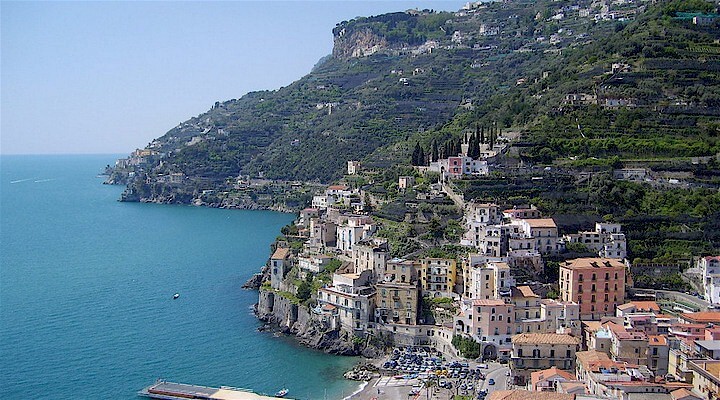 Amalfi Coast
Amalfi Coast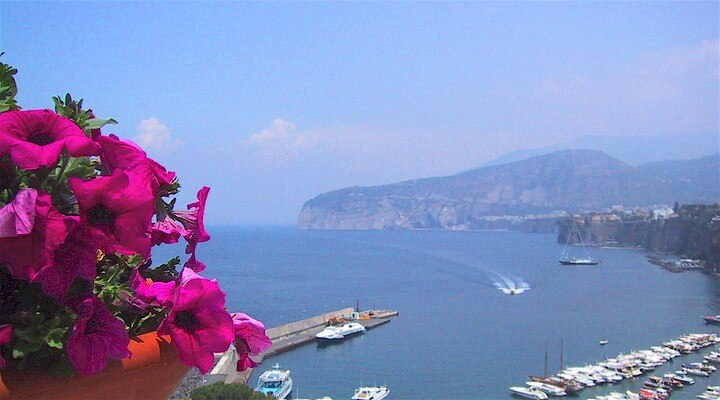 Sorrento Coast
Sorrento Coast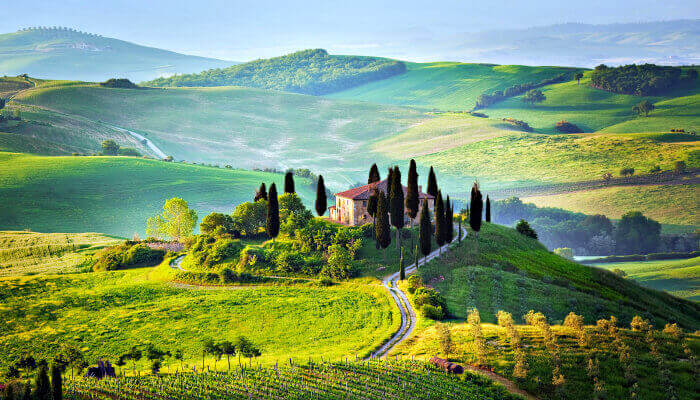 Tuscany
Tuscany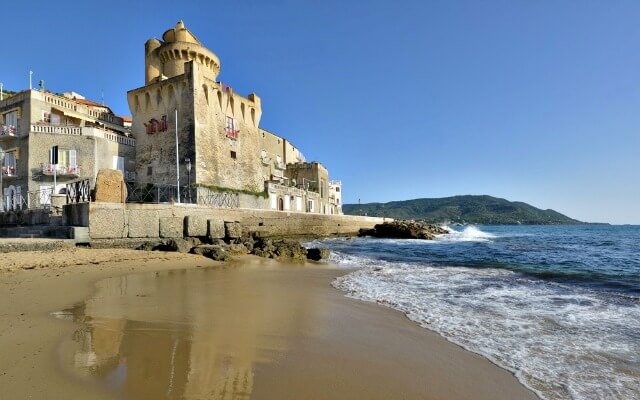 Cilento National Park
Cilento National Park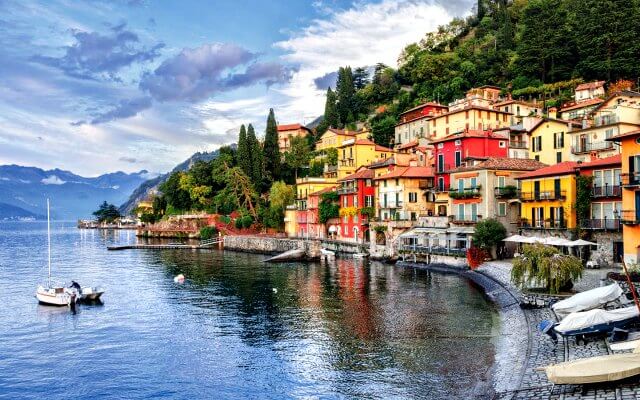 Lake Como
Lake Como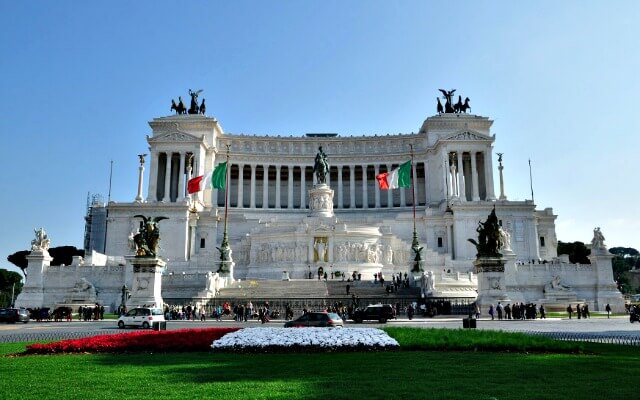 Rome and Latium
Rome and Latium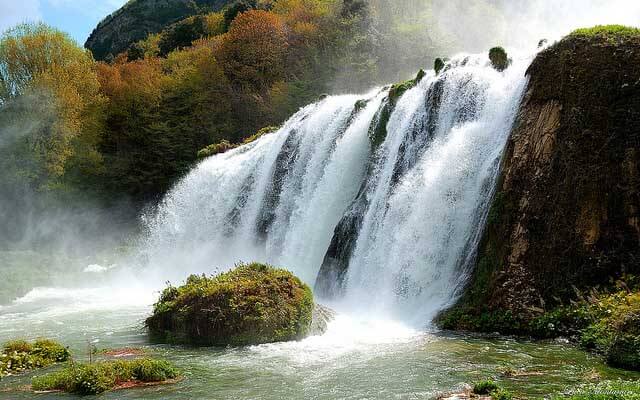 Umbria
Umbria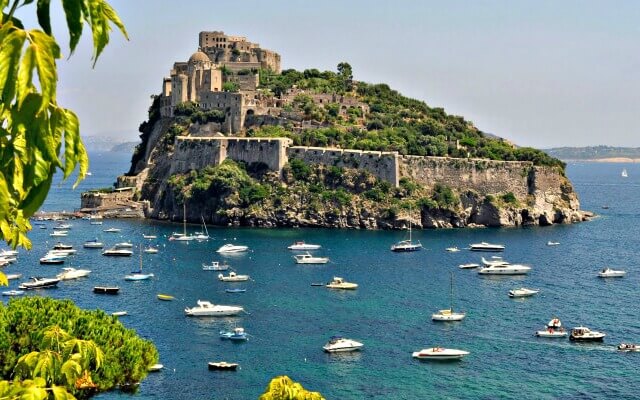 Capri and Ischia
Capri and Ischia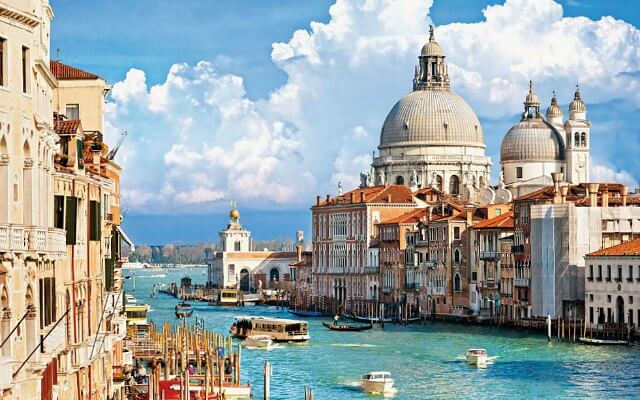 Venice
Venice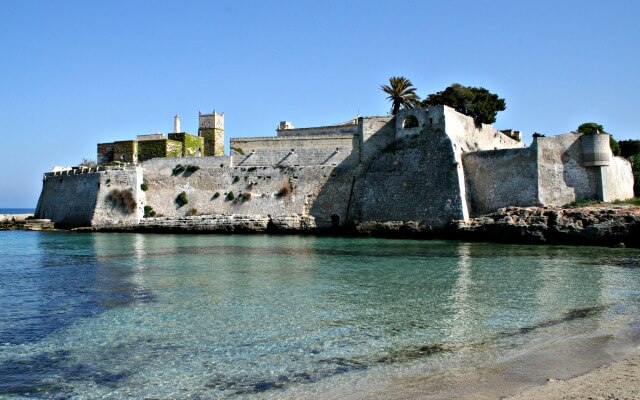 Puglia (Apulia)
Puglia (Apulia)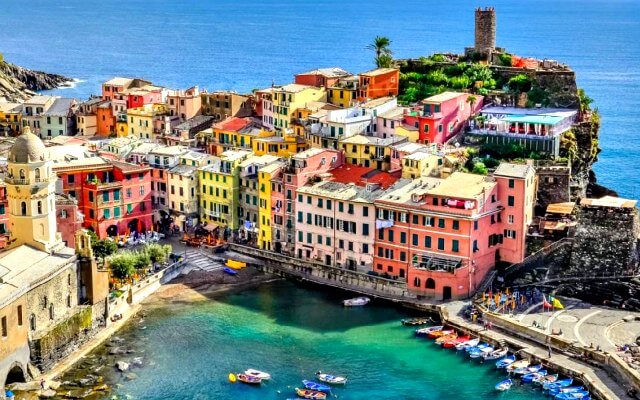 Liguria
Liguria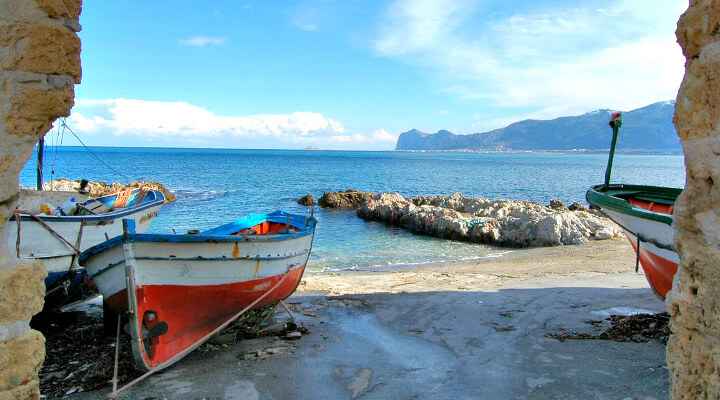 Sicily
Sicily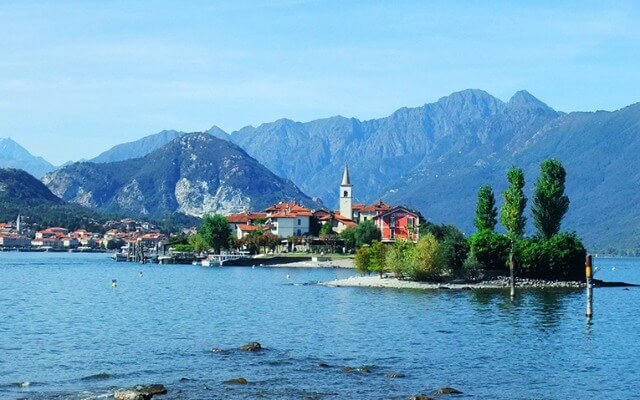 Lake Maggiore
Lake Maggiore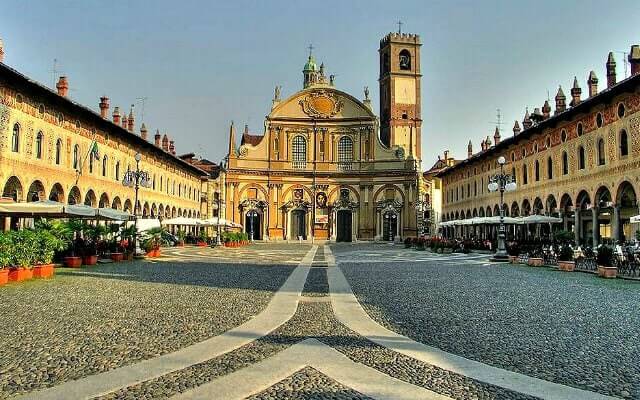 Lombardy
Lombardy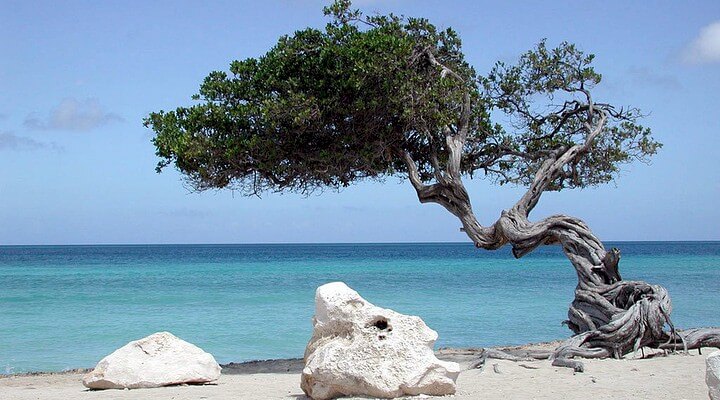 Sardinia
Sardinia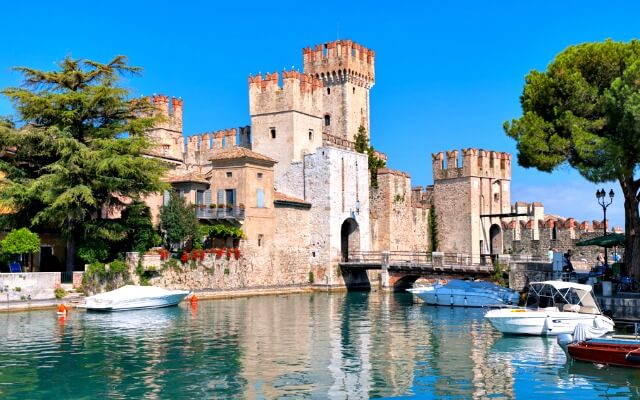 Lake Garda
Lake Garda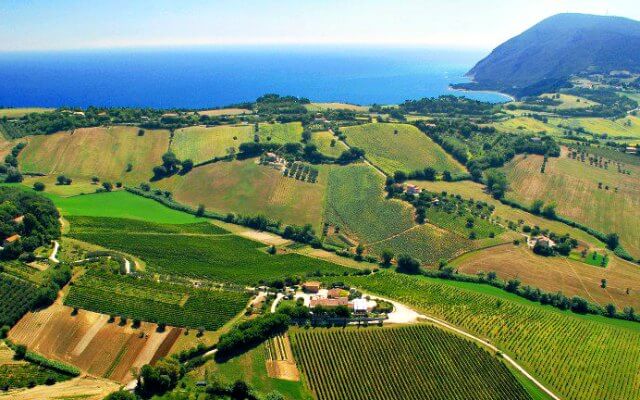 Abruzzo and Marche
Abruzzo and Marche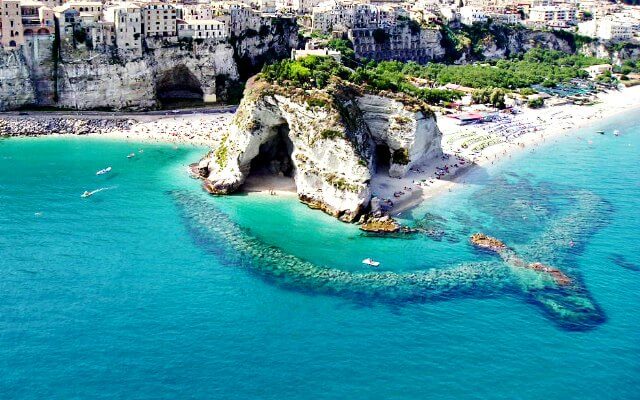 Calabria
Calabria










































